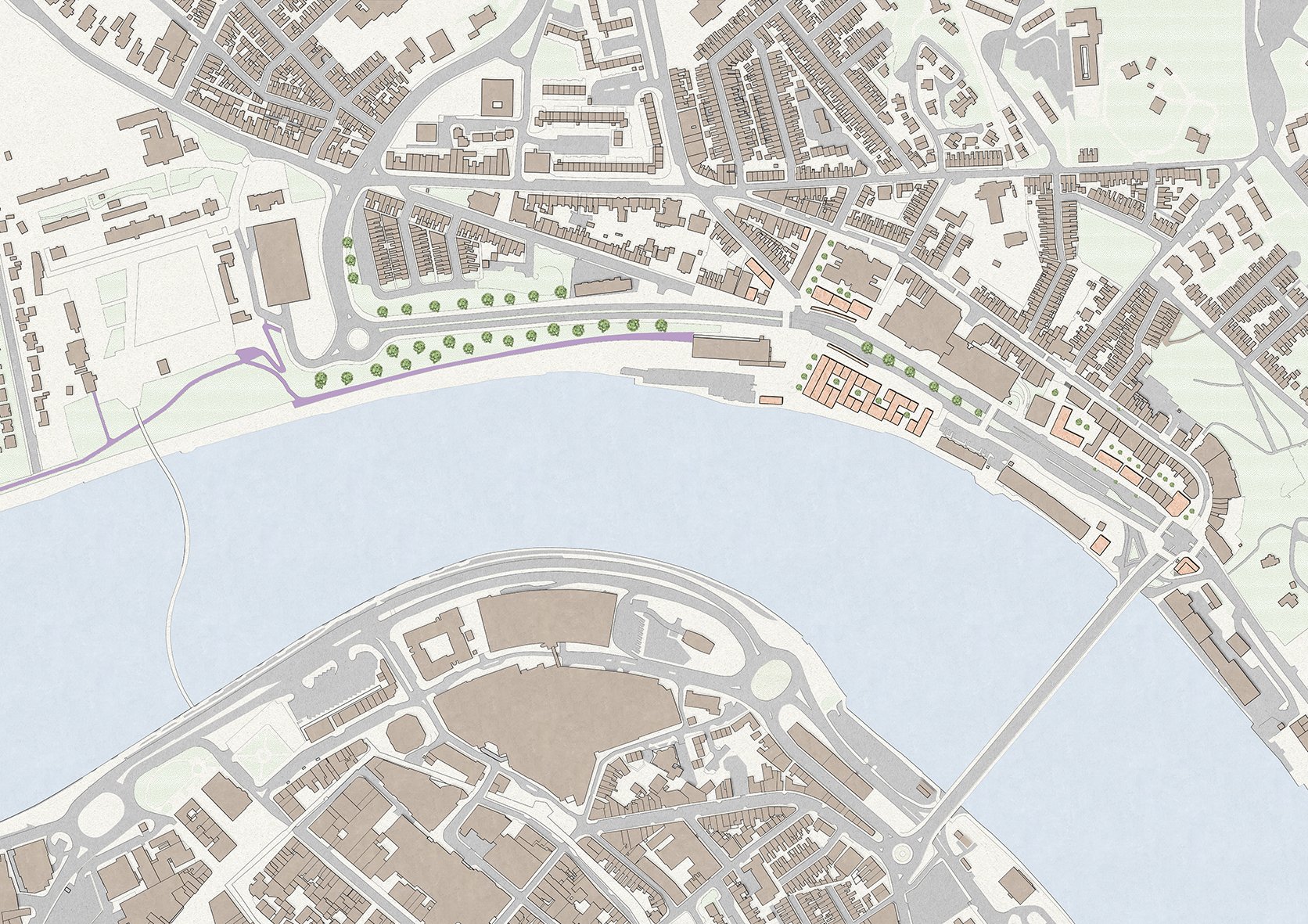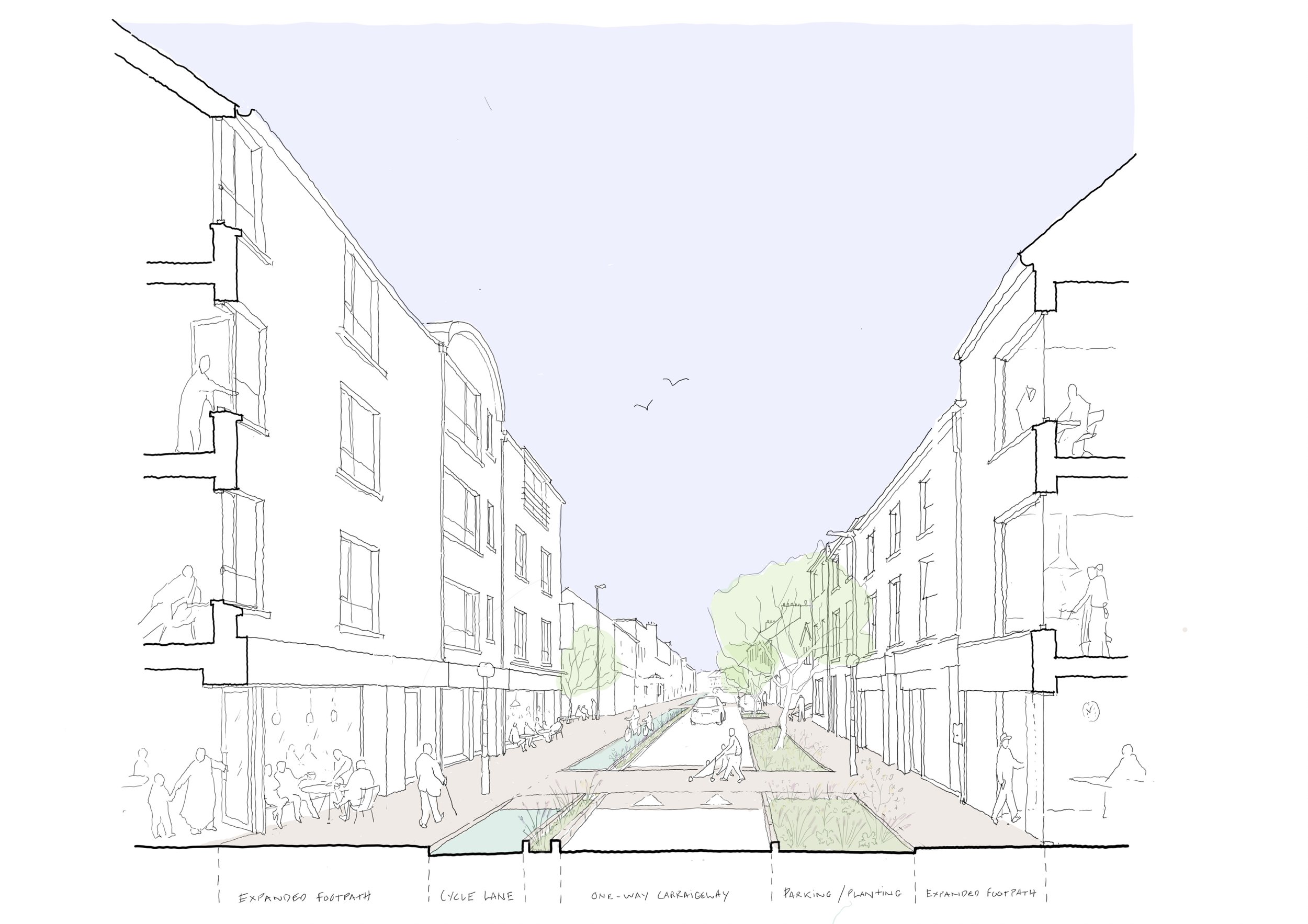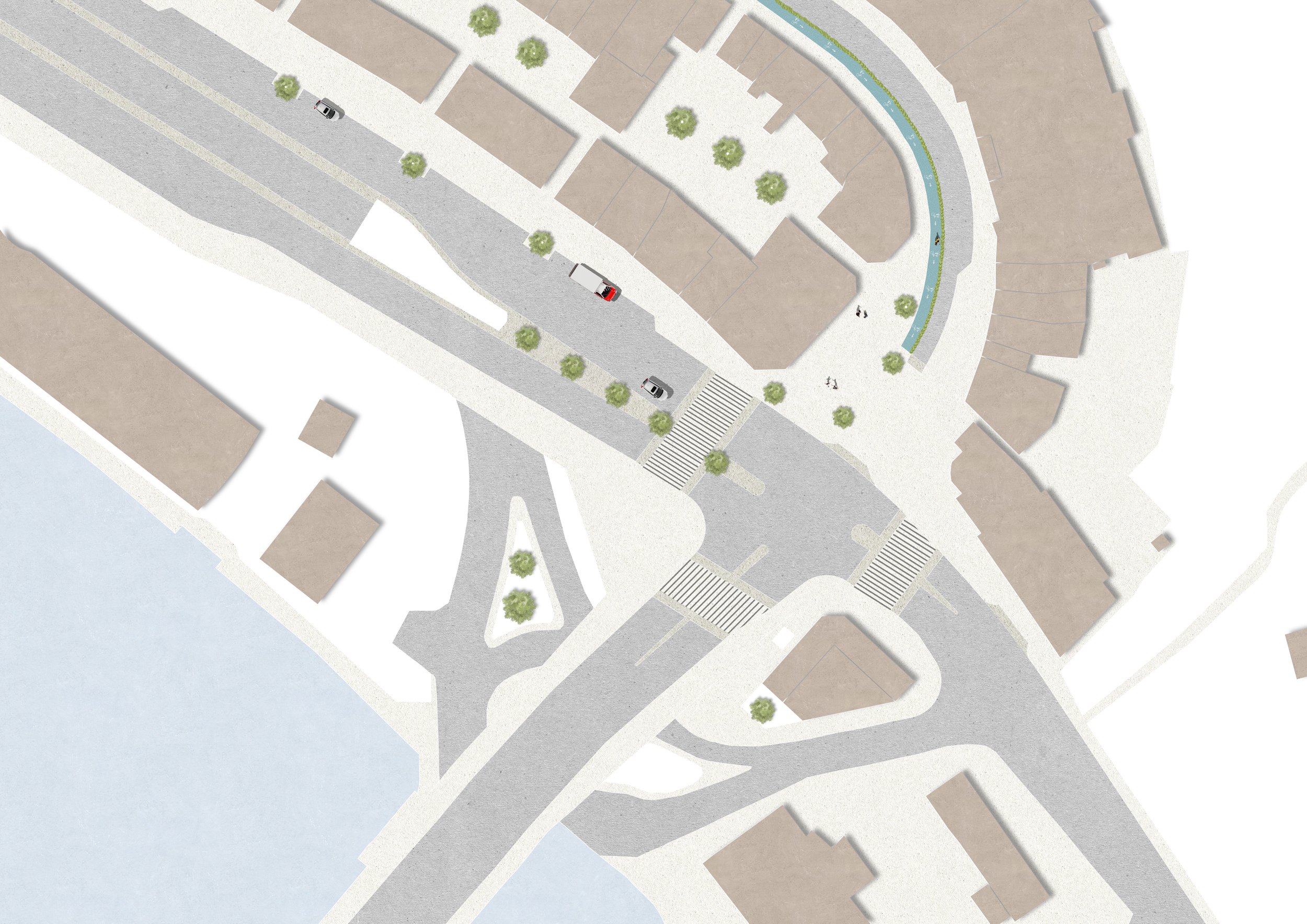Urban Design, Strategy & Research | Introduction
Working in public space is something the practice enjoy, whether that is design at a strategic level, workshops to facilitate engagement or temporary interventions in public spaces.
The practice has developed a specialism in completing temporary and trial urban projects which are often crucial in the realisation of longer-term strategic design ideas for cities. Temporary, trial projects offer people the chance to engage with aspects of planned urban development in their own time and in an informal manner. Such projects make it possible to discuss possible urban futures with local residents, businesses and statutory bodies, testing ideas at a small scale, adjusting and improving proposals as a collaborative exercise.
Recently completed urban projects include the Ormeau Parklet: the first parklet in Northern Ireland and at a much larger scale, a strategic plan for west Belfast. In the past year, OGU worked with Derry + Strabane District Council to develop their city centre public space strategy for Covid-19 recovery, taking a longer term view of how good quality urban design might utilise temporary interventions to provide long term value to the historic walled city of Derry-Londonderry. We are also working with Derry + Strabane District Council to develop a large scale masterplan around 8 key urban interventions along the Waterside. The practice has extensive experience working with local authorities as well as community organisations and business clusters.
The practice has been working with the Department for Infrastructure and Belfast City Council to revitalise Adelaide Street in Belfast City Centre with a series of temporary, demountable amendments to the public realm and a reduction of the existing road space to improve the pedestrian experience - see also Placemaking & Landscape. The scheme has seating, places for eating, areas of incidental play for residents and a series of lantern structures which provide shelter and also reference the area’s history of linen manufacturing.
Prior to co-founding OGU, Chris worked on large scale strategic planning work in London, including Olympic Legacy work at Hackney Wick. More recently he has completed urban design work with Eastside Partnership and Derry + Strabane District Council which formed part of the successful City Deal bid. Rachel has extensive experience working on participatory, grassroots projects with local residents and community organisations in north India When she moved to Belfast she co-authored a strategy for better sound quality in cities with Prof. Gascia Ouzounian and Dr Sarah Lappin at Queen’s University Belfast.
Derry Londonderry | Inner Waterside
Inner Waterside: Towards a Reconnected City is a public realm concept plan for Derry-Londonderry focussing on part of the city east of the Foyle river. Eight strategic urban proposals are explored in the document which would contribute to an improved public realm, a better connected neighbourhood and a more sustainable local high street.
Client: Derry City + Strabane District Council
West Belfast | Communities in Transition
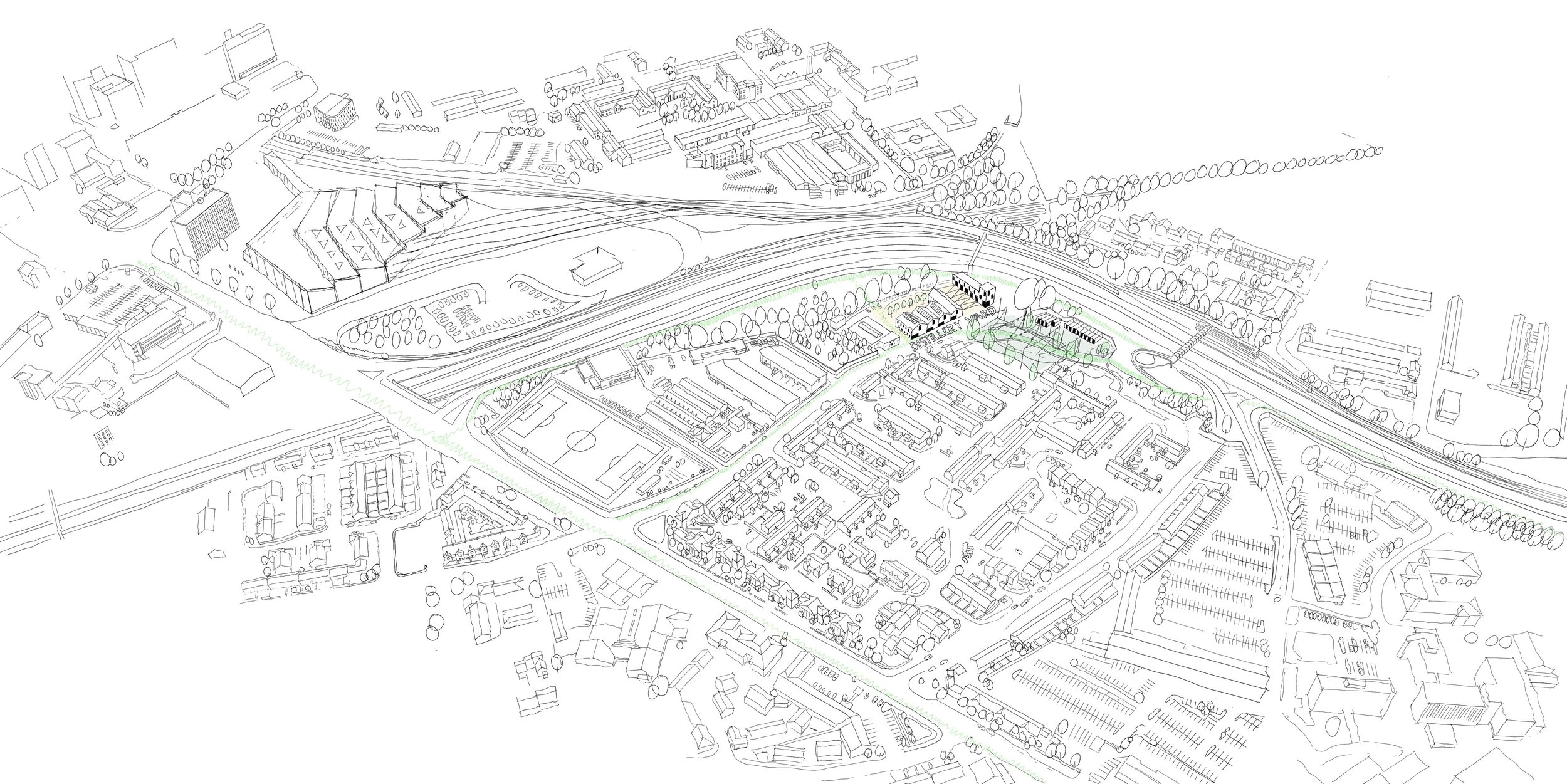
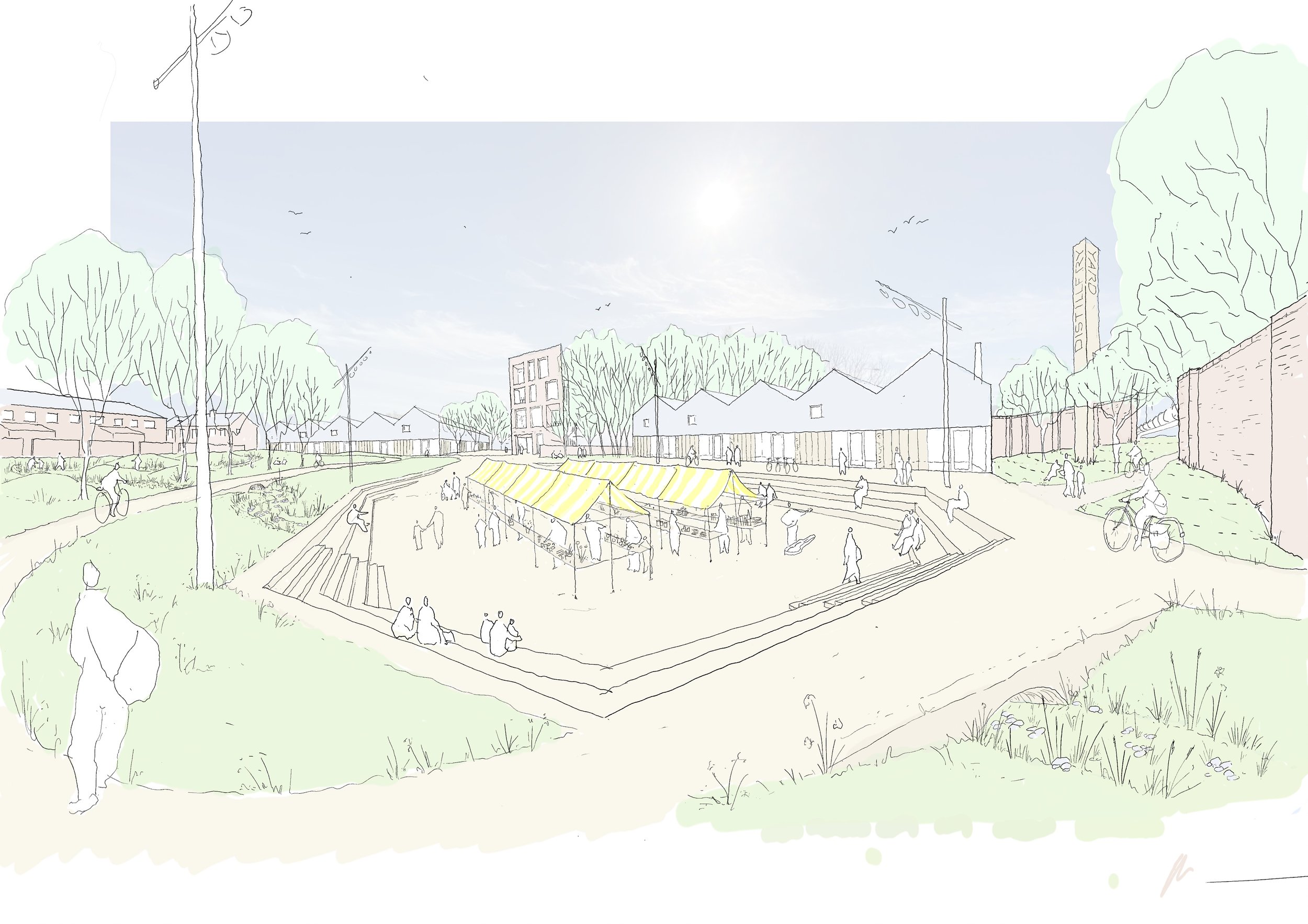
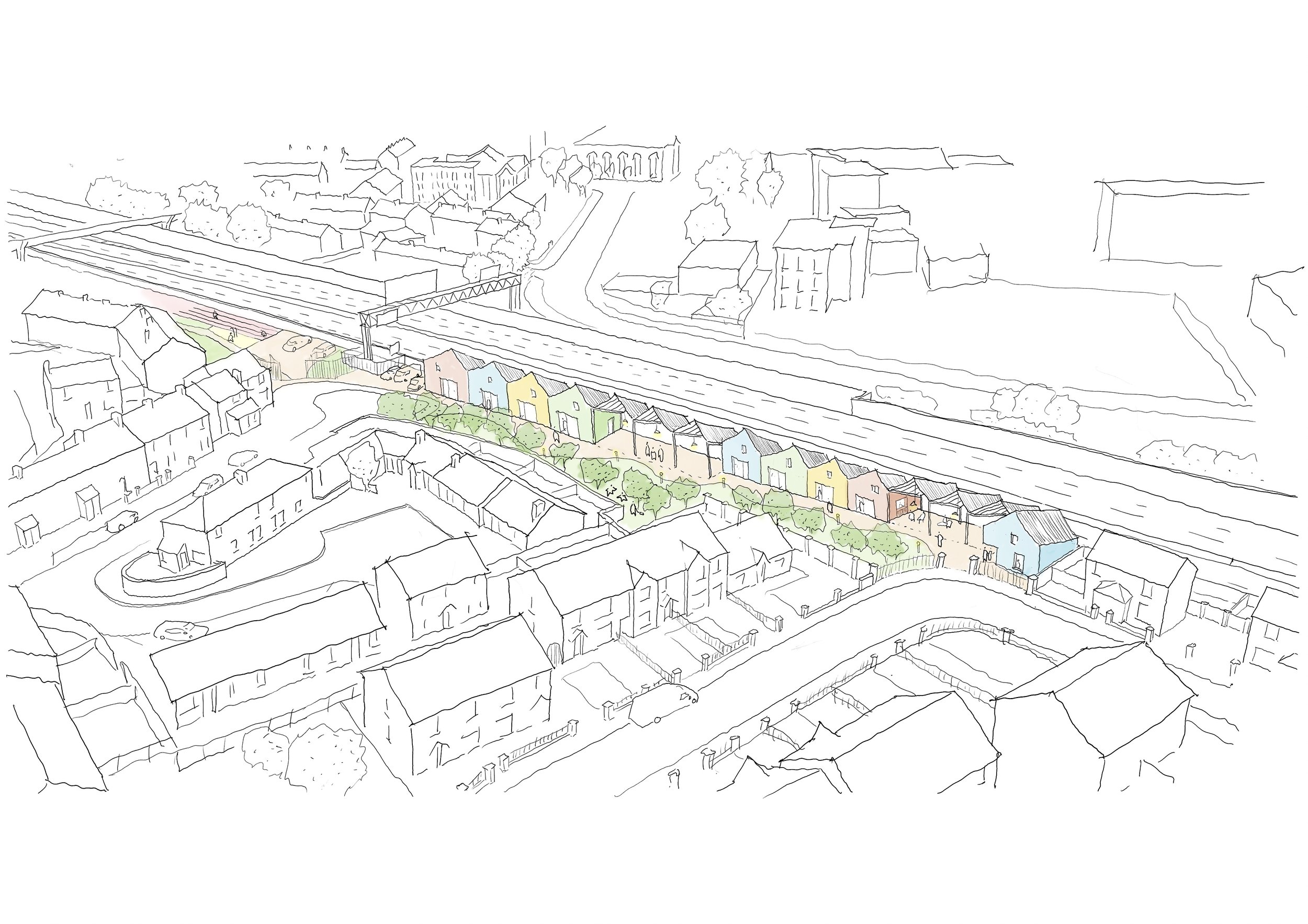
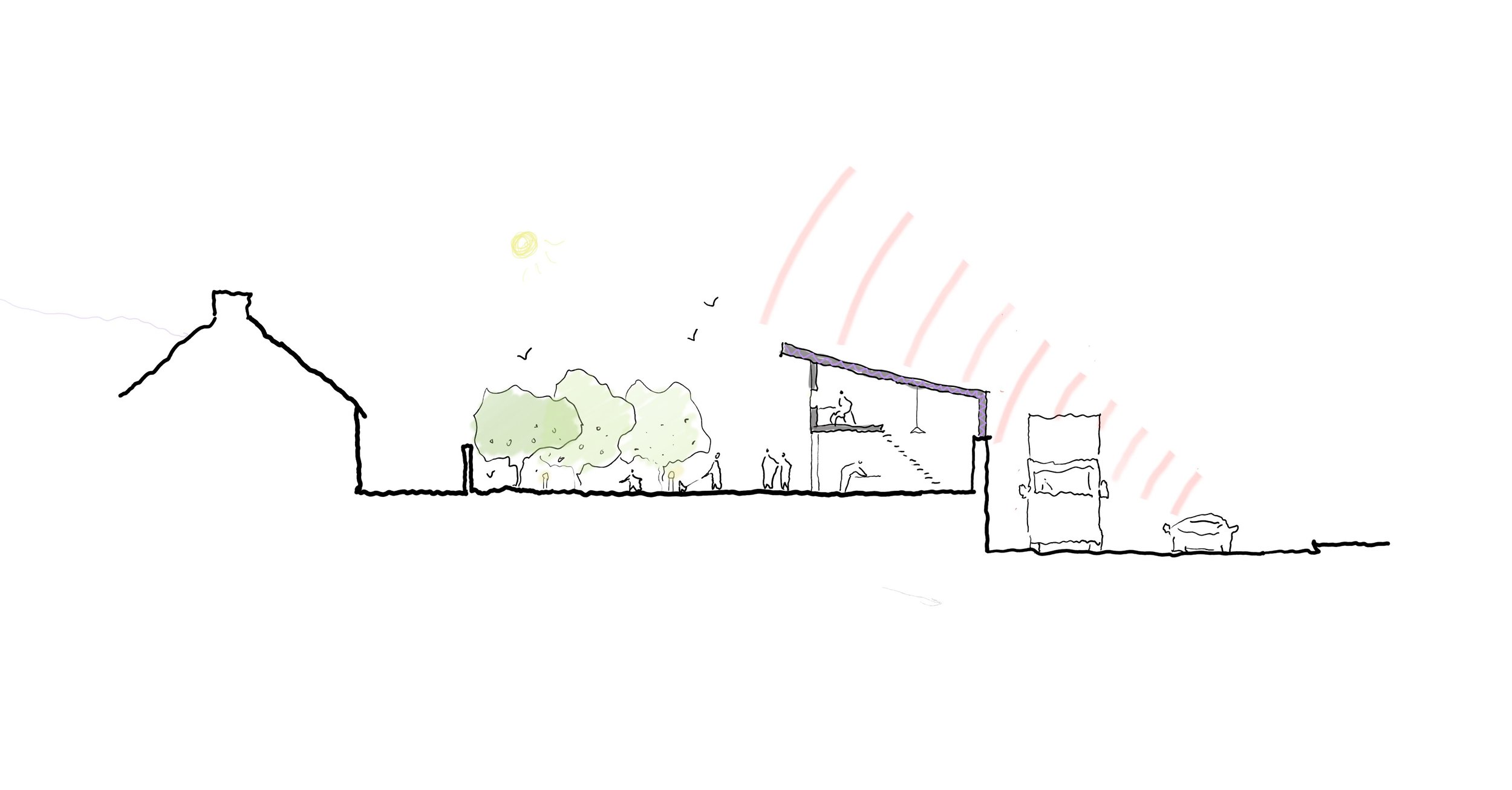
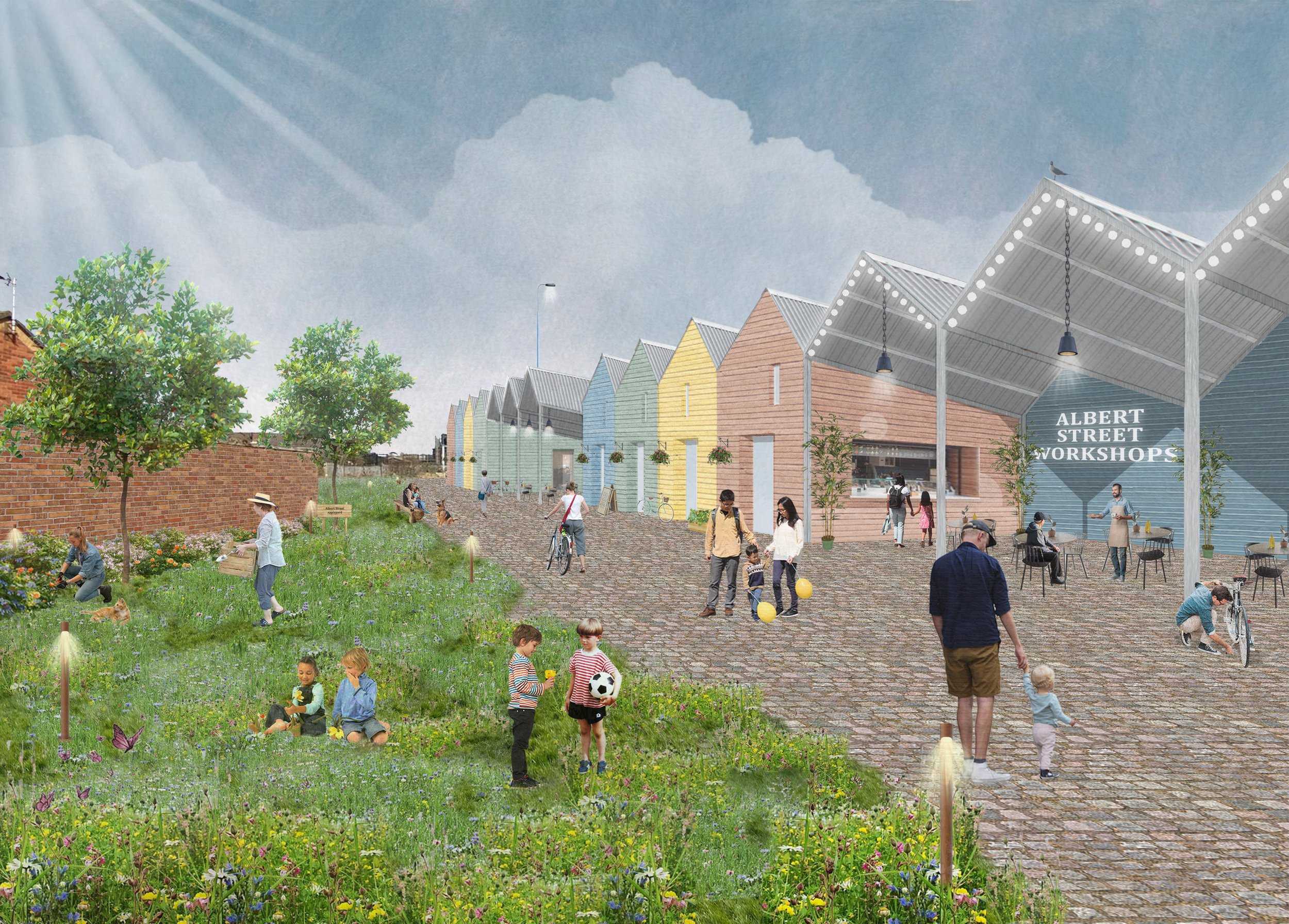
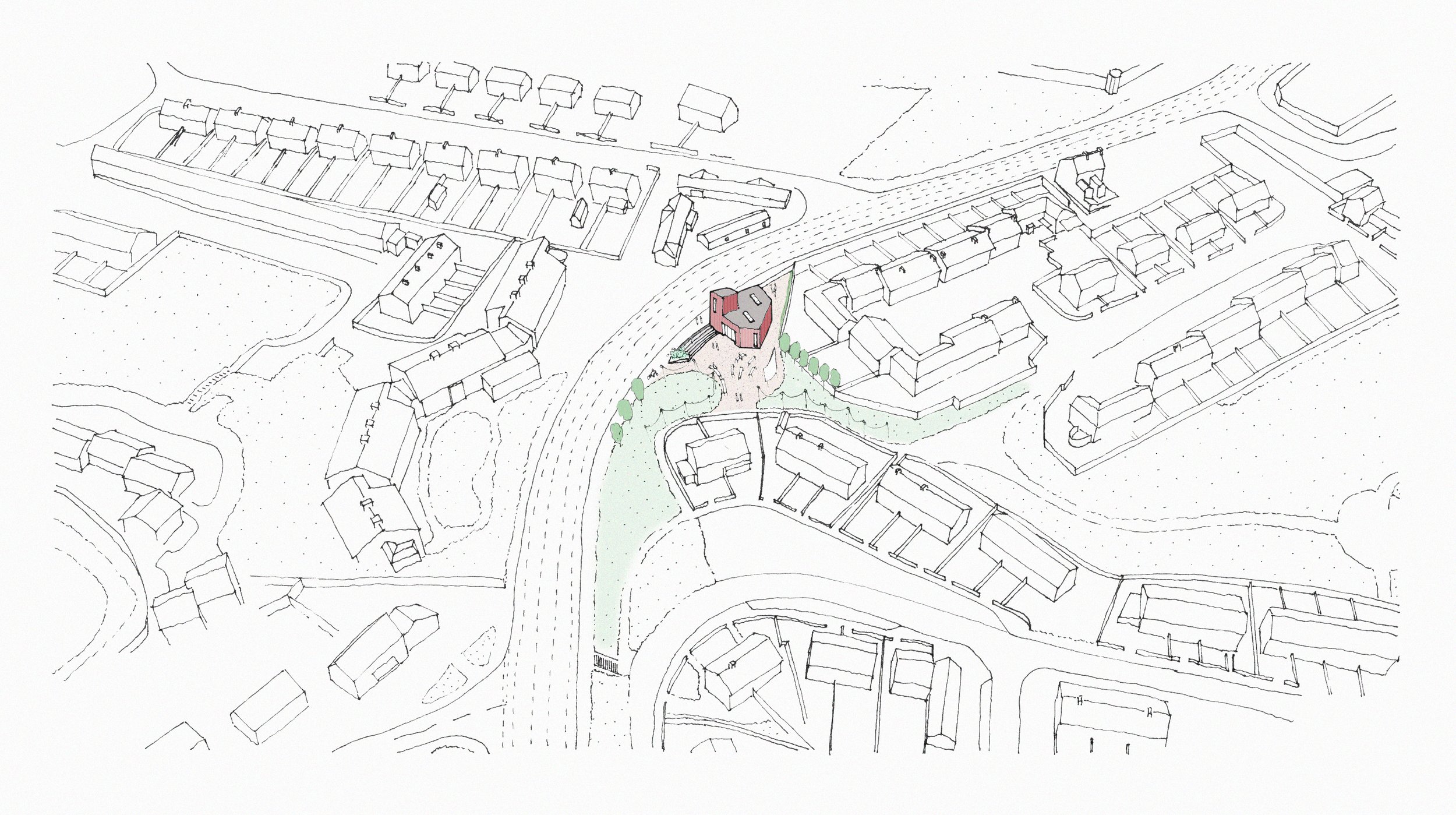
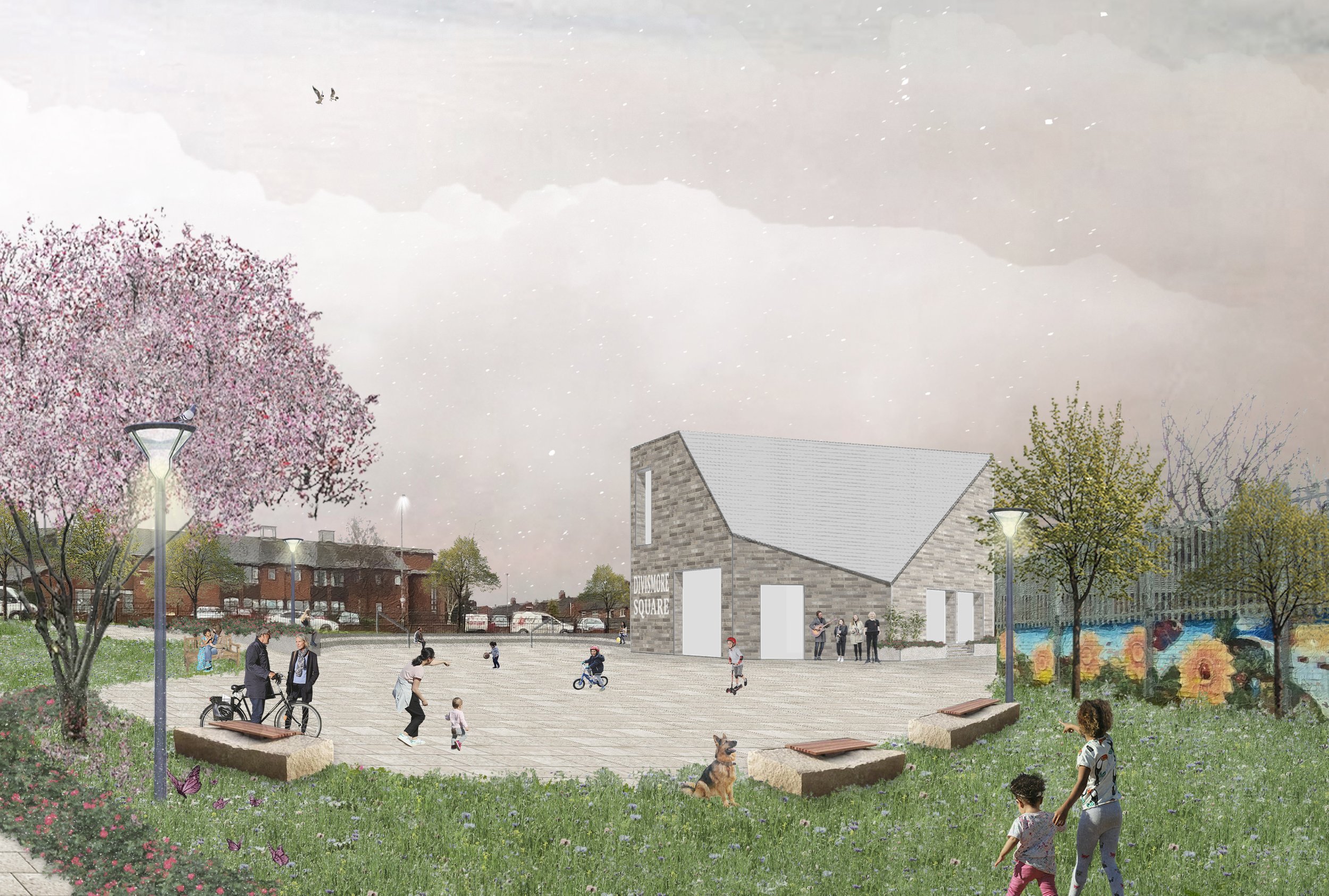
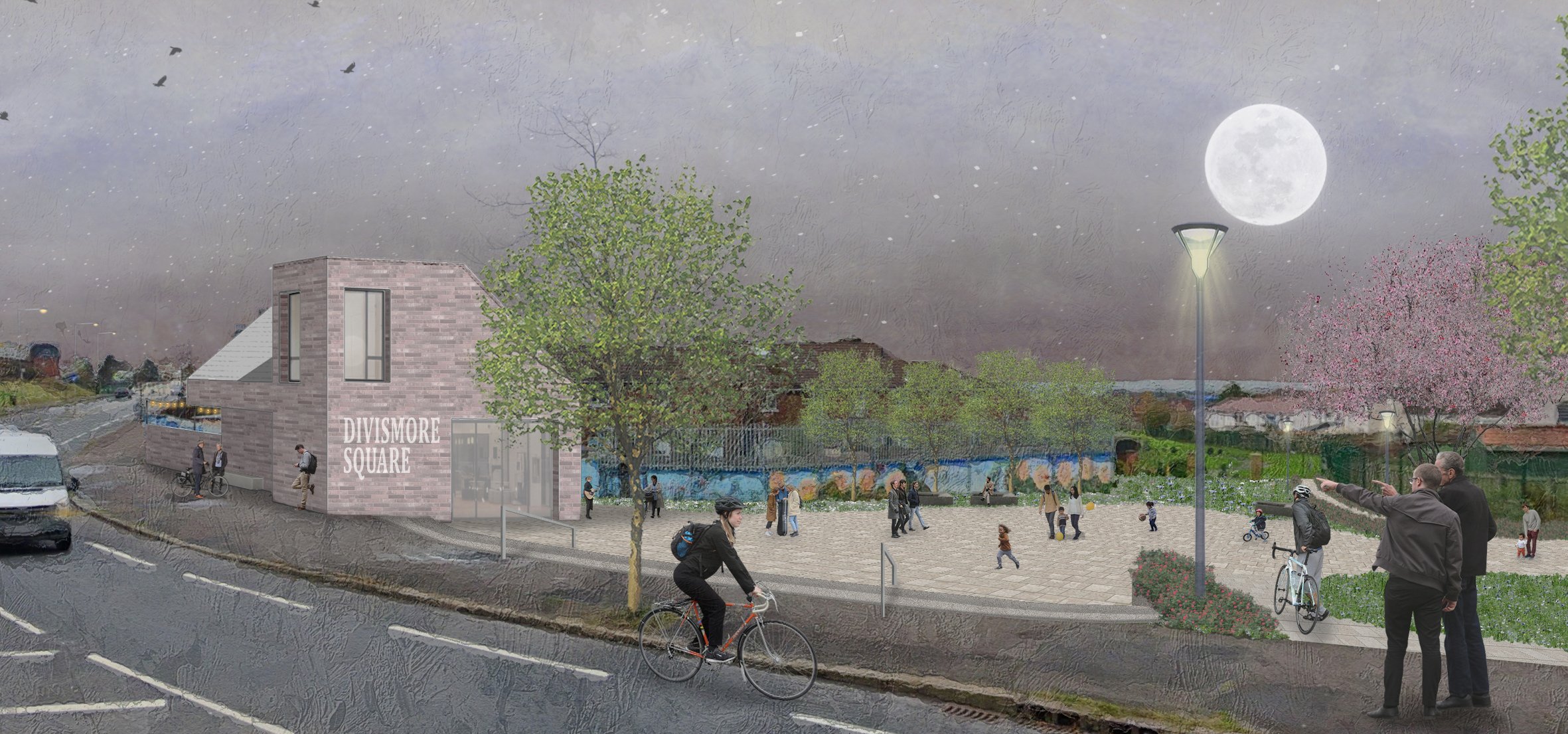
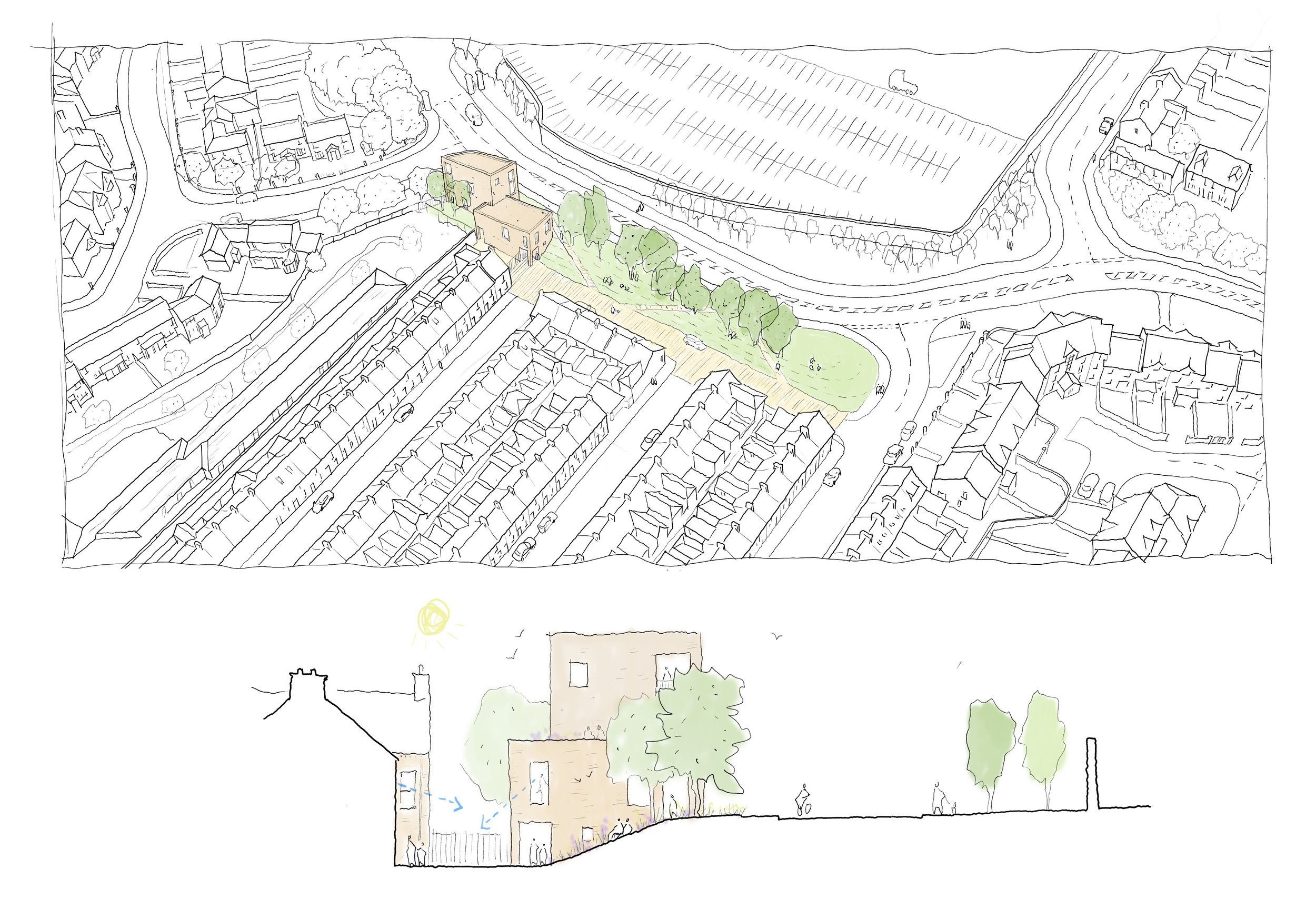
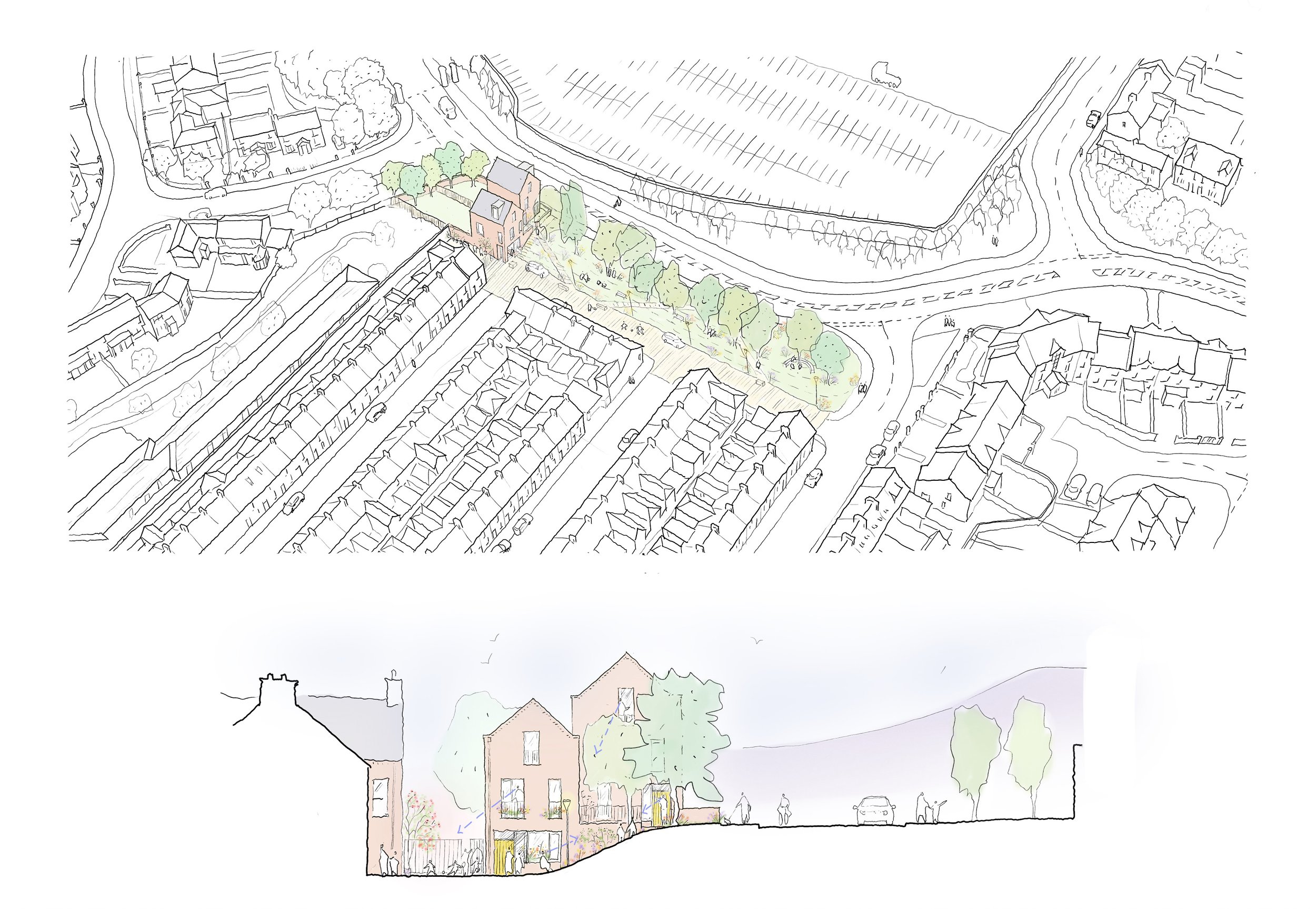
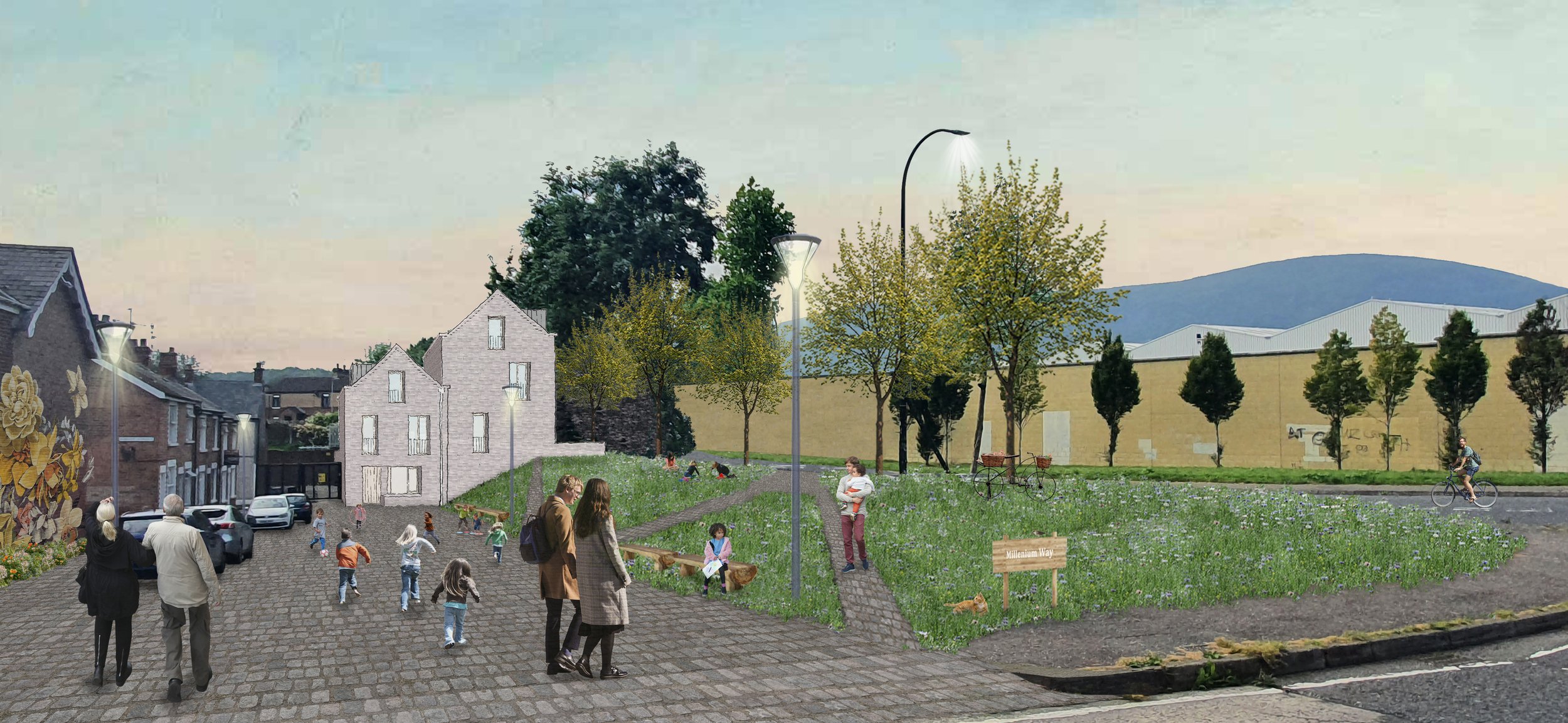
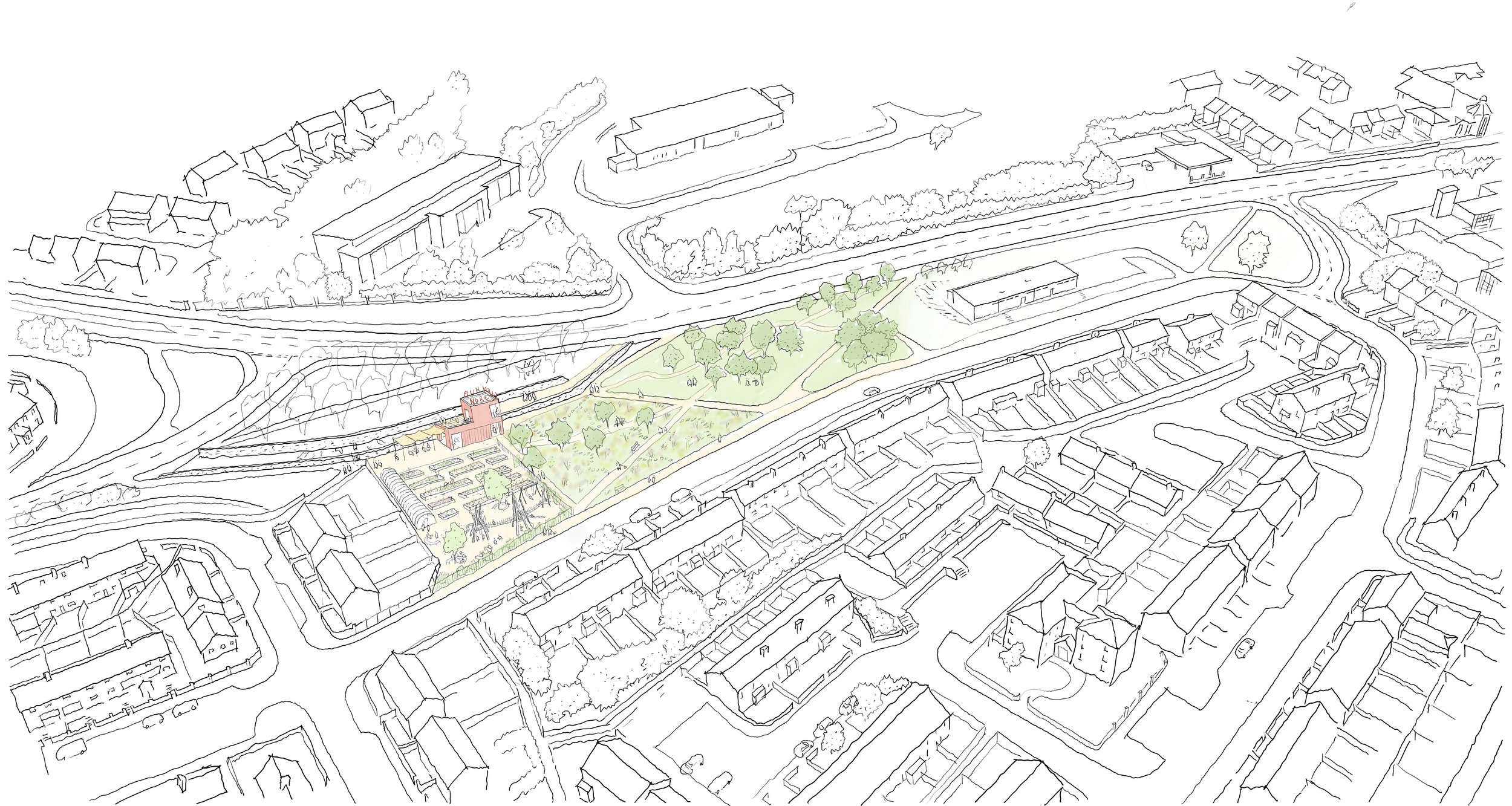
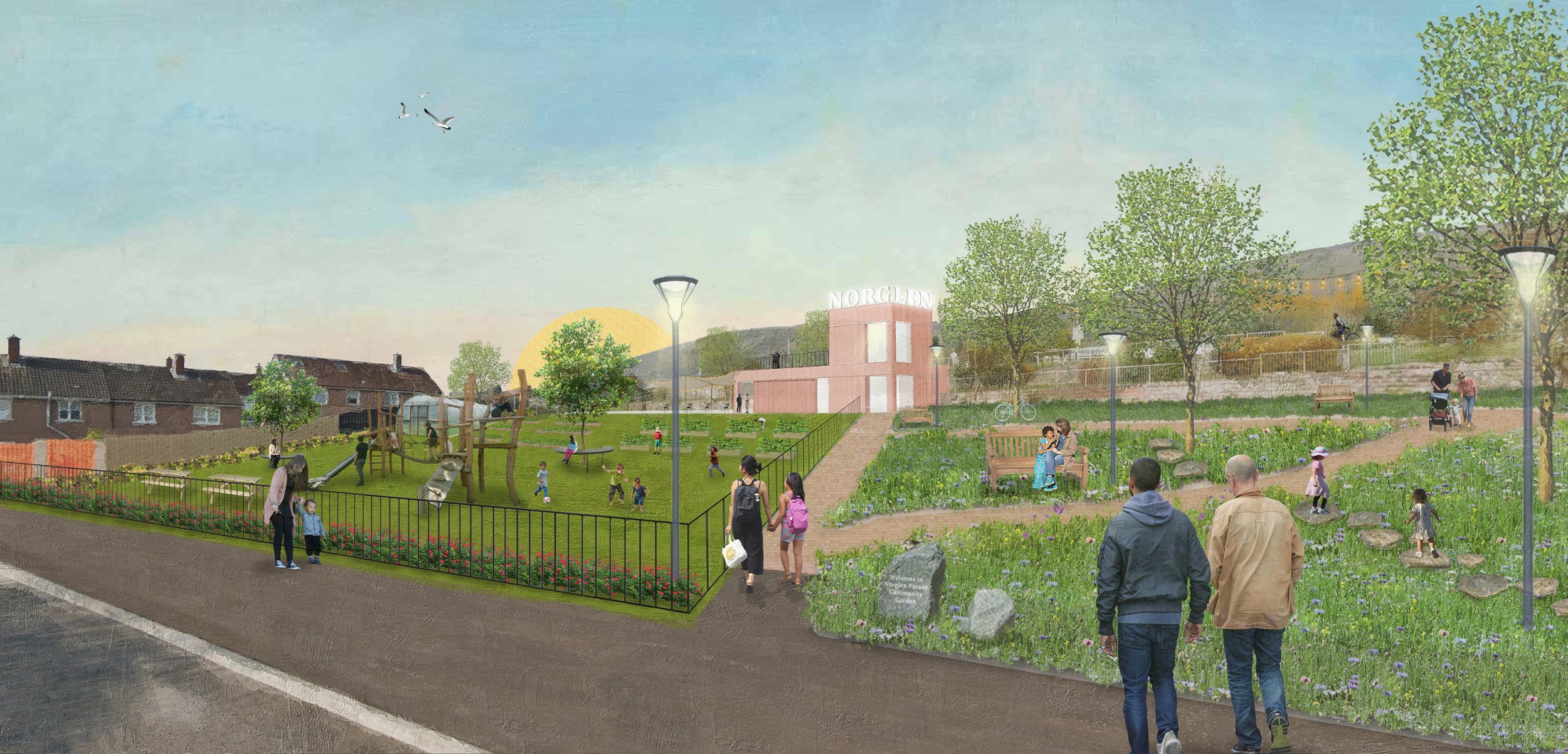
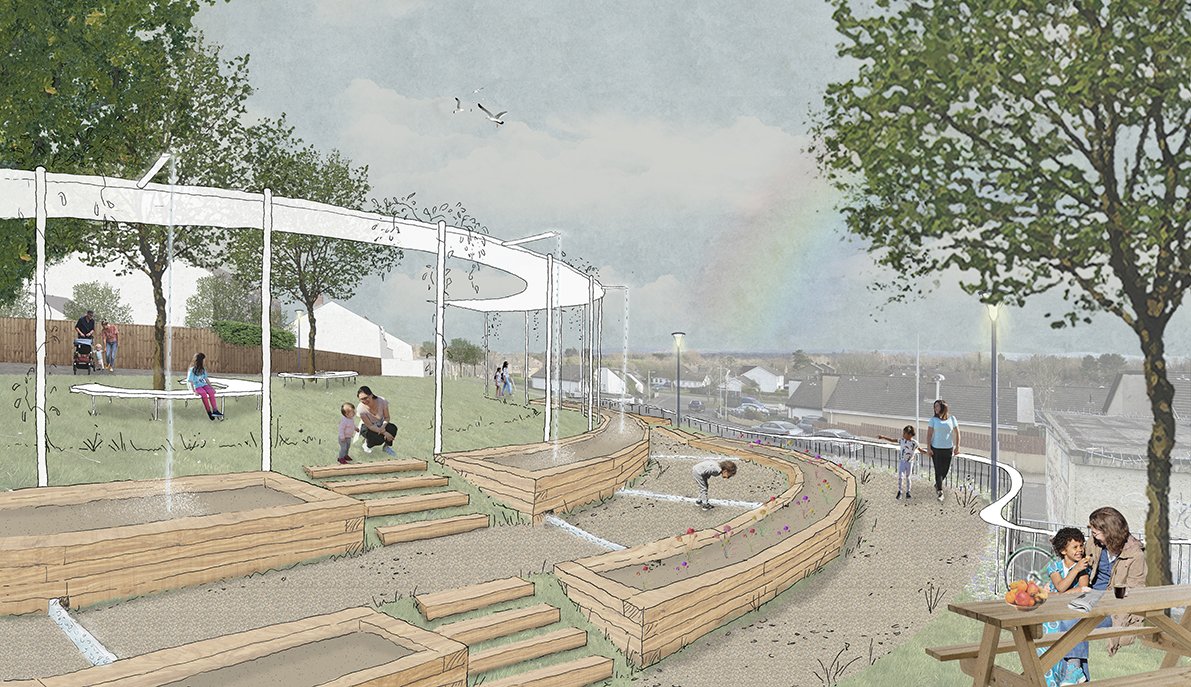
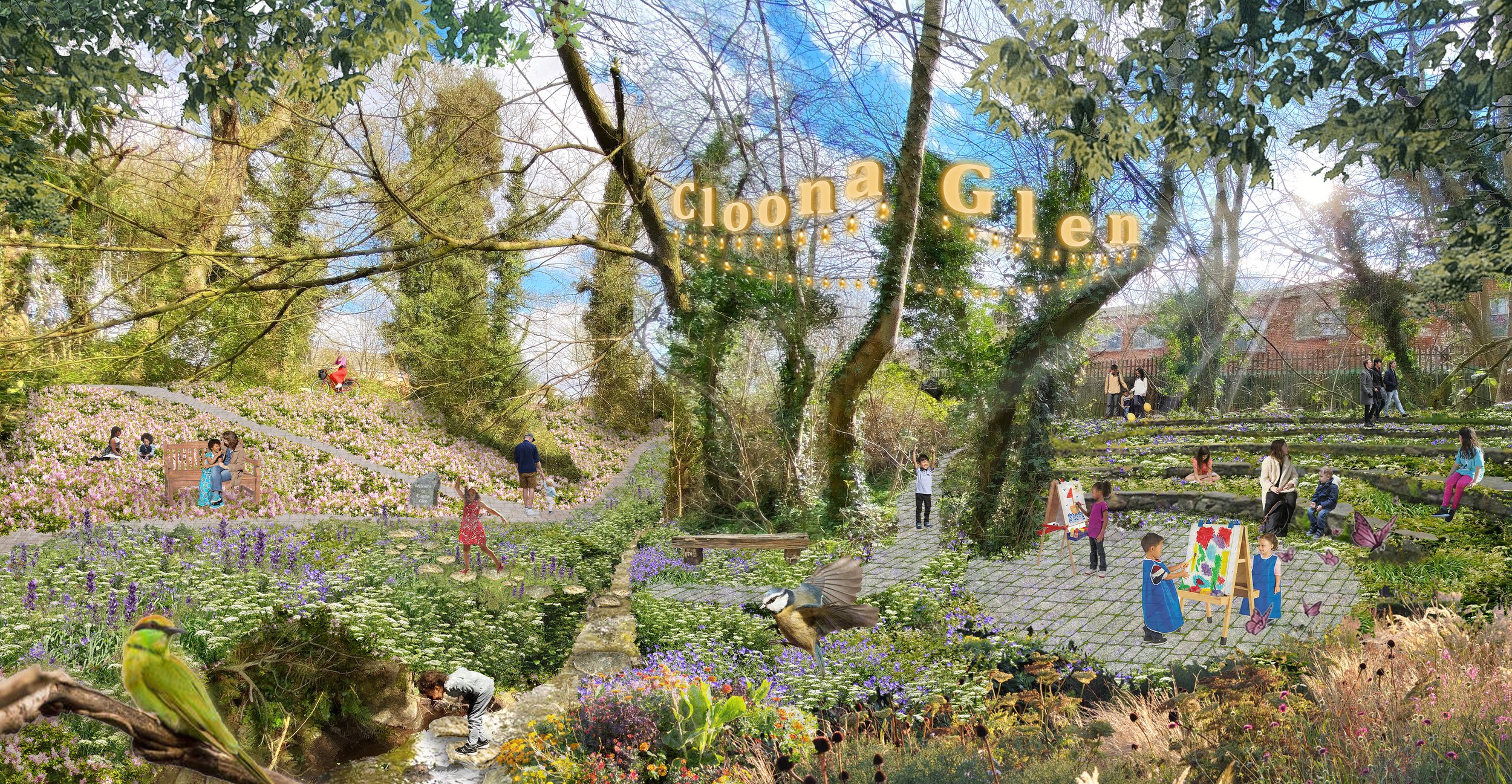
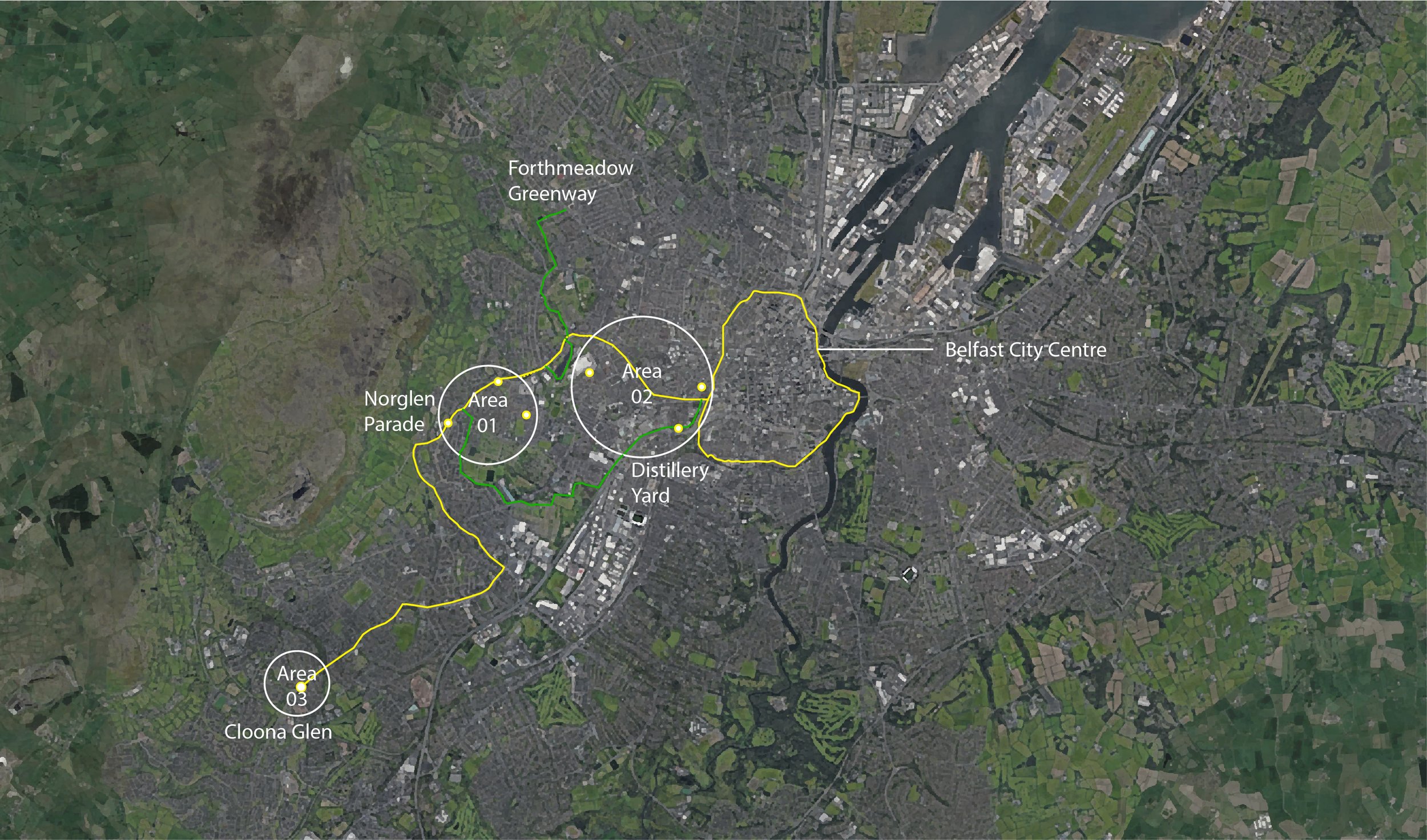
The strategic urban design work in west Belfast was funded through the Northern Ireland Executive Office. Working in partnership with Falls Community Council and three area delivery groups: Upper Springfield Development Trust, Roden Street Community Development Group, Sally Gardens Community Development Group and colleagues at MMAS, the practice has spent 12 months developing deliverable urban design strategies and project ideas for eight identified sites across west Belfast. Each area group has selected one of these sites to take forward to develop further detail and business cases with the aim to begin construction in 2022.
Client: Falls Community Council, Upper Springfield Development Trust, Roden Street Community Development Group, Sally Gardens Community Development Group. Funded by Northern Ireland Executive Office.
Derry City Centre Strategy | Covid Recovery & Revitalisation: Street Life + Vibrant Places
OGU have also been working alongside Derry City and Strabane District Council and MMAS Architects on the cities' Covid Recovery measures. Collectively this team has been designing urban interventions that can encourage long term regeneration, street vibrancy and public life so that as we move on from the pandemic our cities become more resilient. OGU/ MMAS were commissioned by Derry City & Strabane District council in July to complete a city and town centre strategy as part of their covid recovery and revitalisation work. Working with the DCSDC Regeneration team we completed site visits to establish potential city measures which could be implemented by Department for Infrastructure, council or local business. There was consultation with a wide number of council partners including IMTAC with a series of proposed interventions.
The team were keen that thinking would apply best urban design practice and be strategic so that long term benefit could be achieved. Council recognises that beyond covid - city and town centres are struggling with the decline in retail. Some of the temporary measures are a chance to test whether improving the sitatuation for pedestrians generally is an opportunity to improve the experience for visitors and locals and ultimately supporting the local economy.
The measures proposed will include extensions to the public realm (including pavements), changes in traffic flows, provision of outdoor seating, outdoor lighting and various other street improvements. It has also served as a guidance document for business as they use grants to improve outdoor space.
The strategy document has served as a consultation tool to help various partners experiment with improvements to curate their street in various ways.
Client: Derry City & Strabane District Council.
Tajganj | Participatory Planning
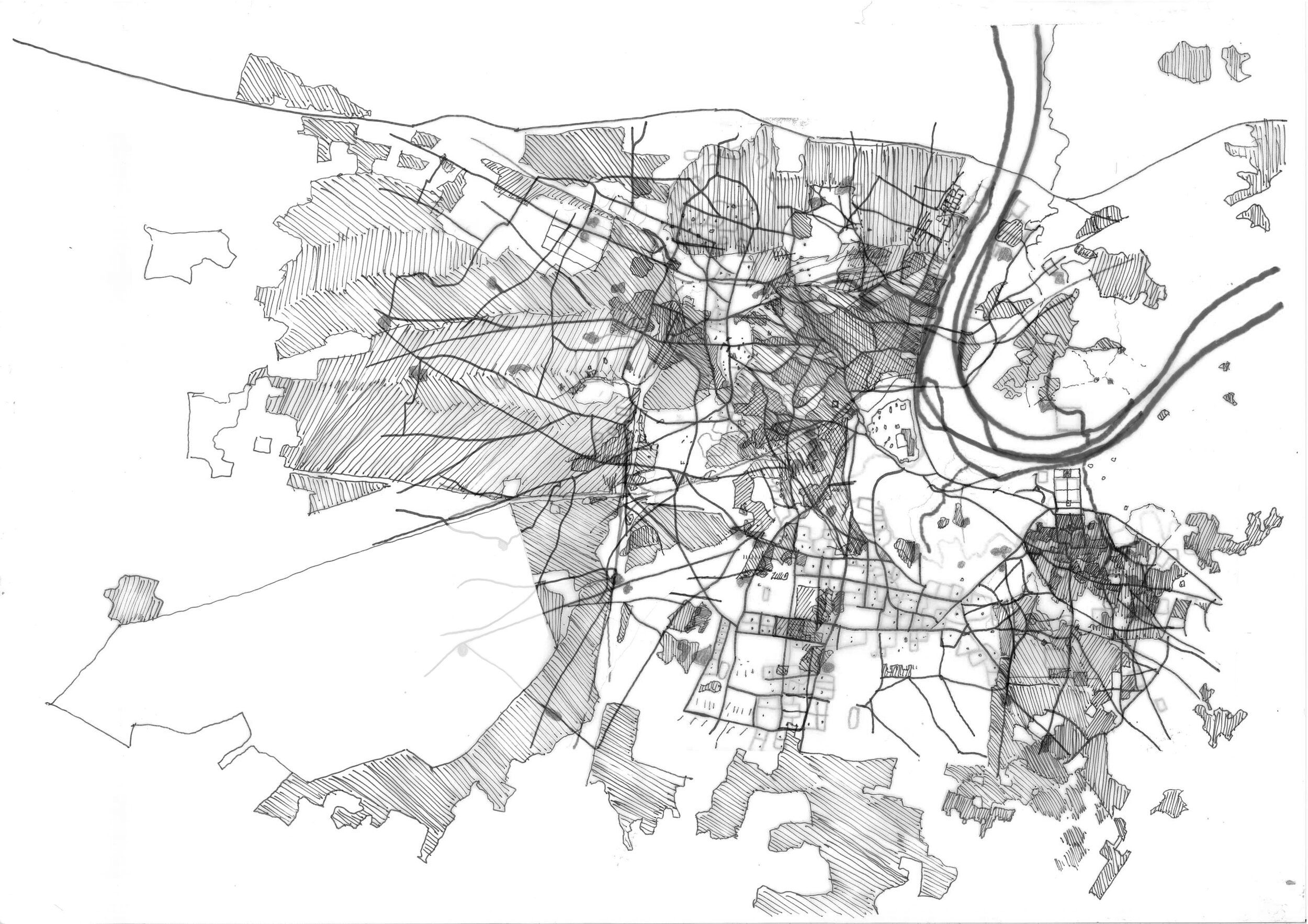
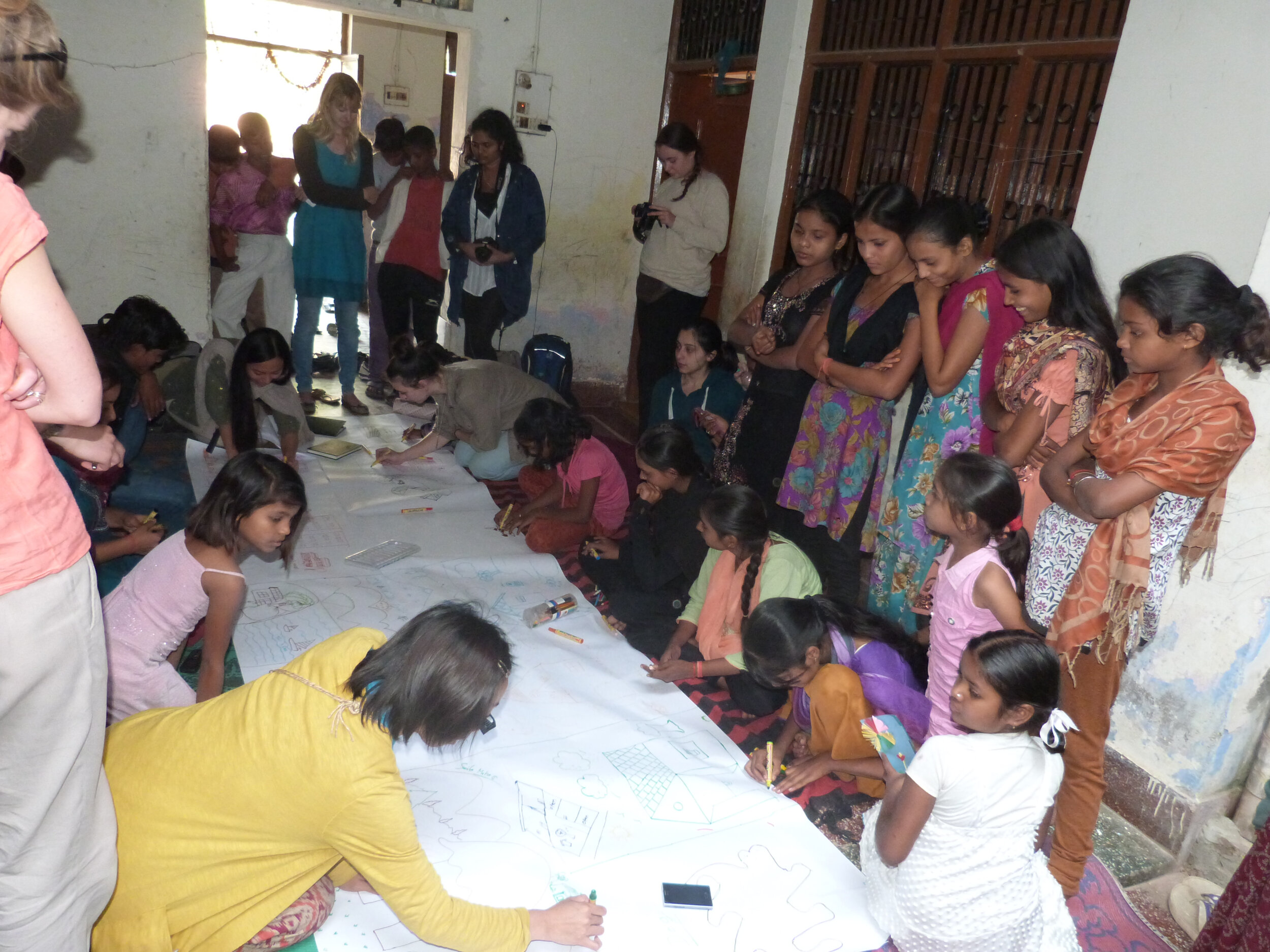
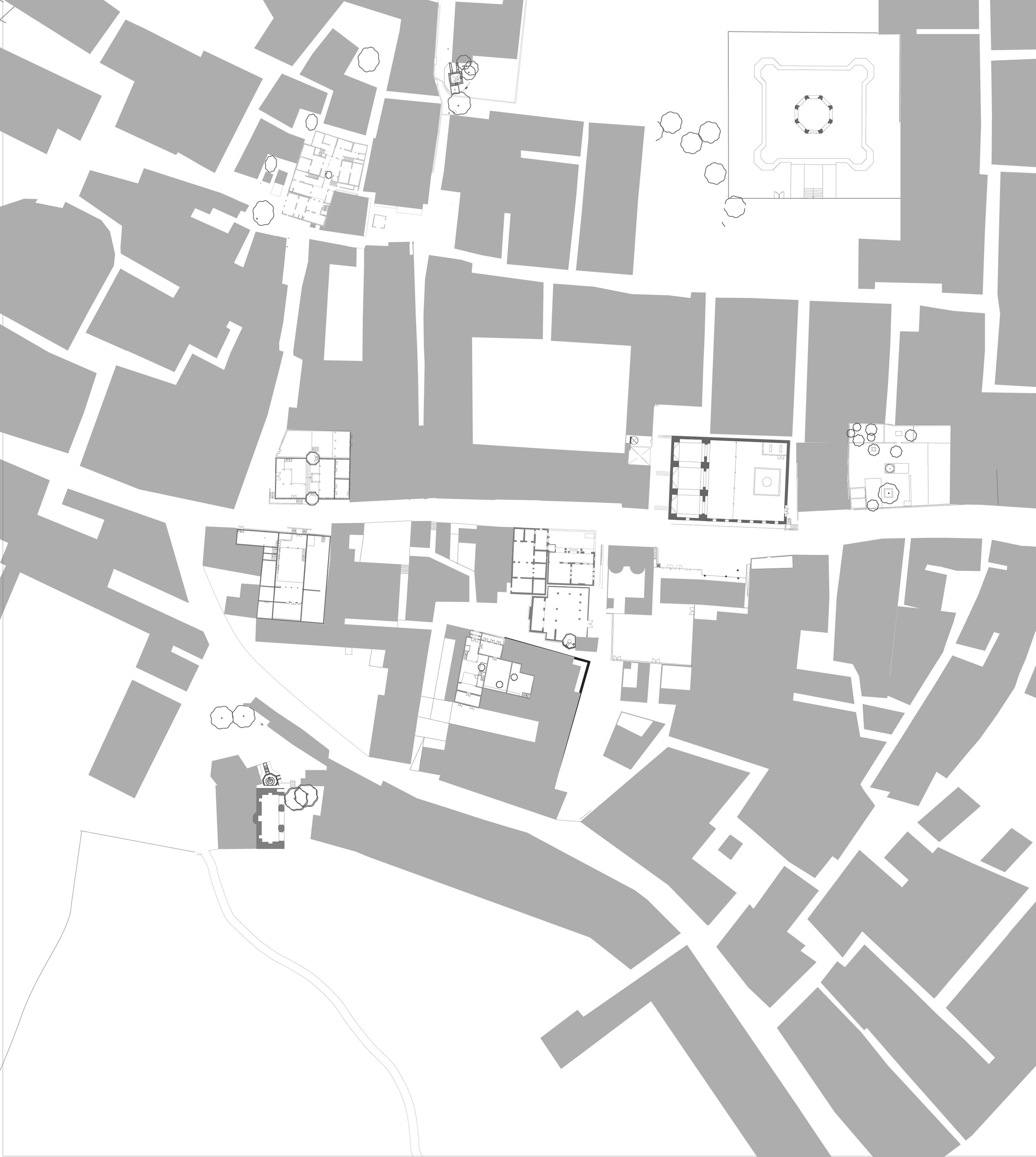
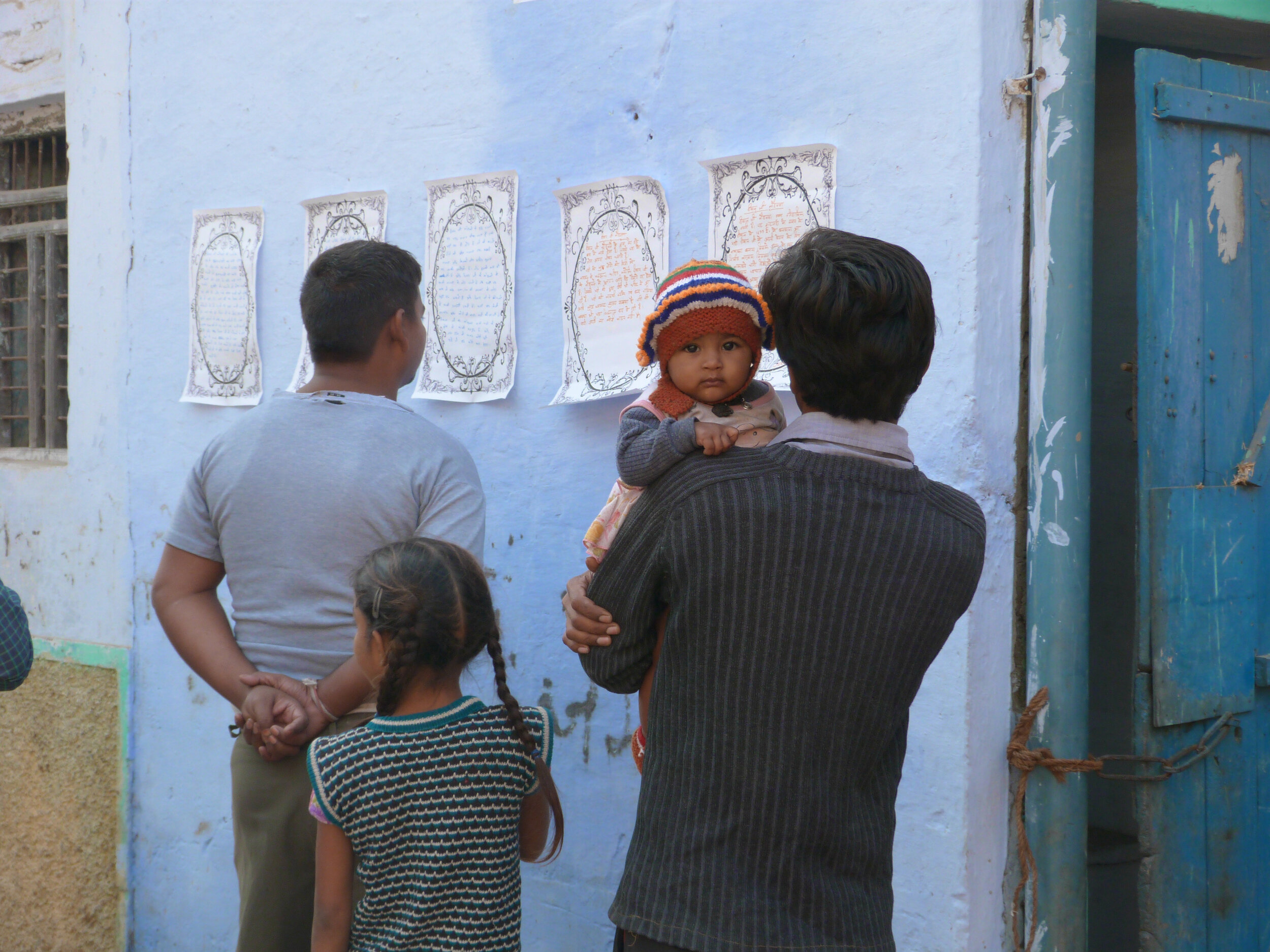
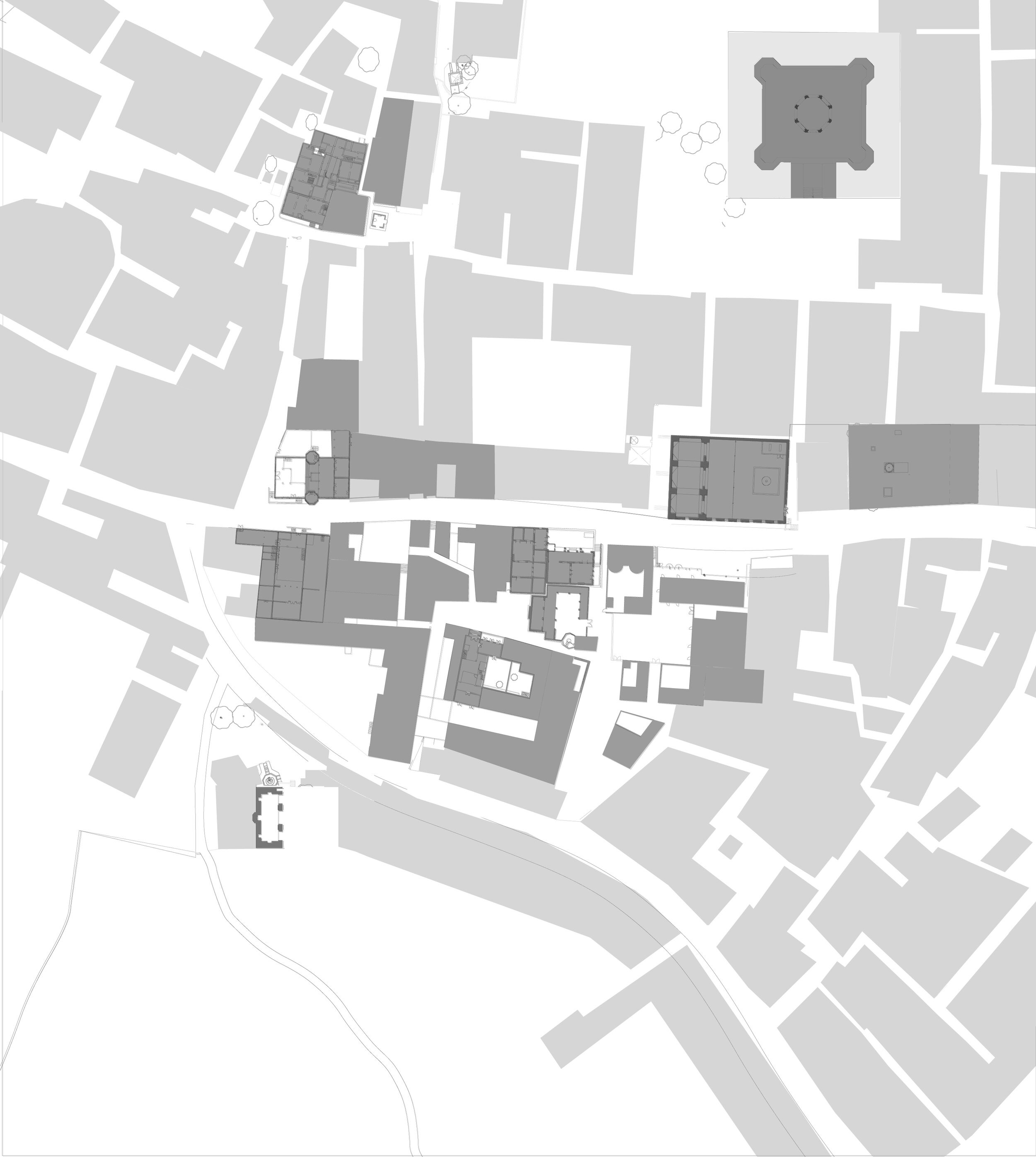
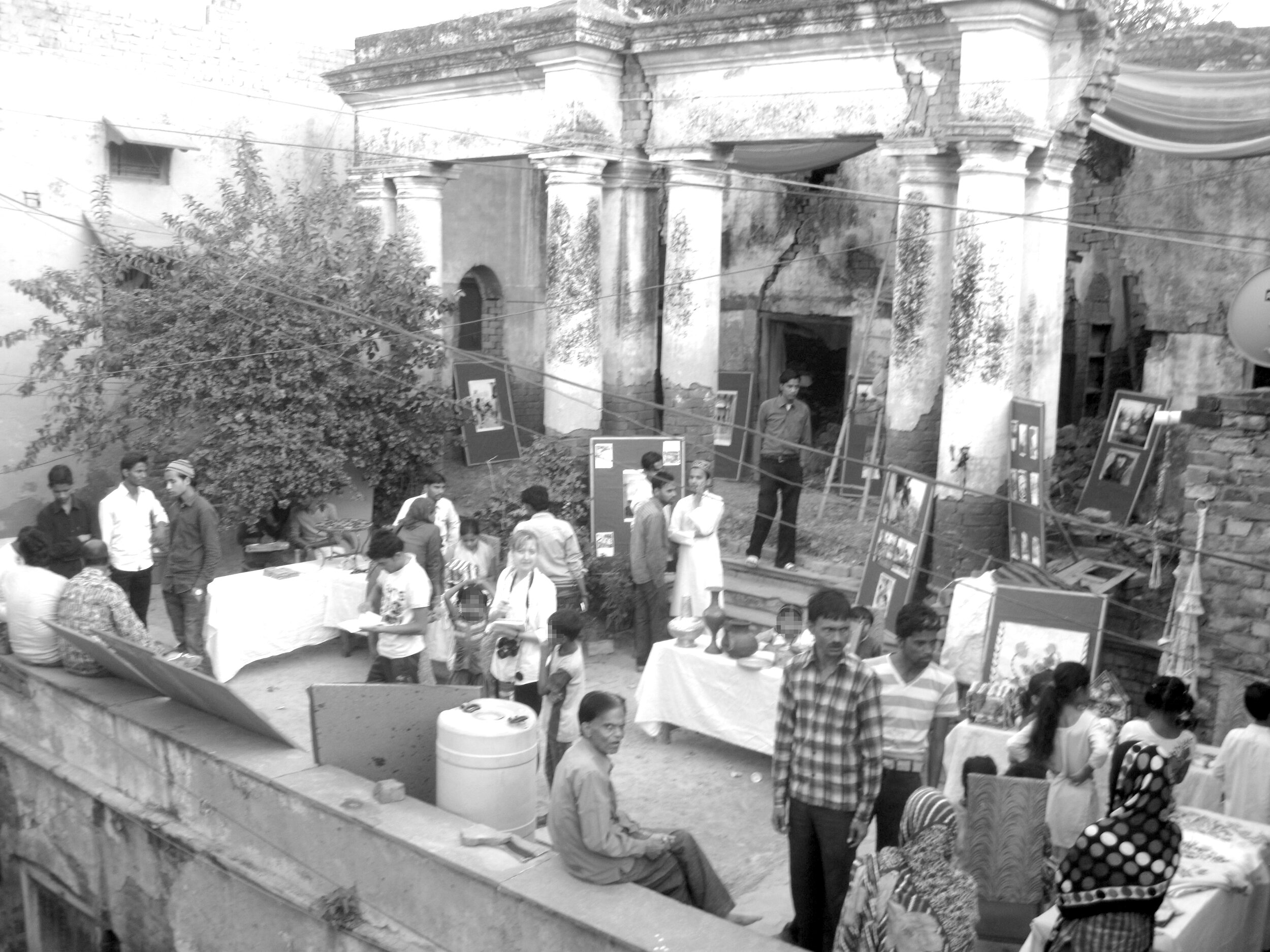
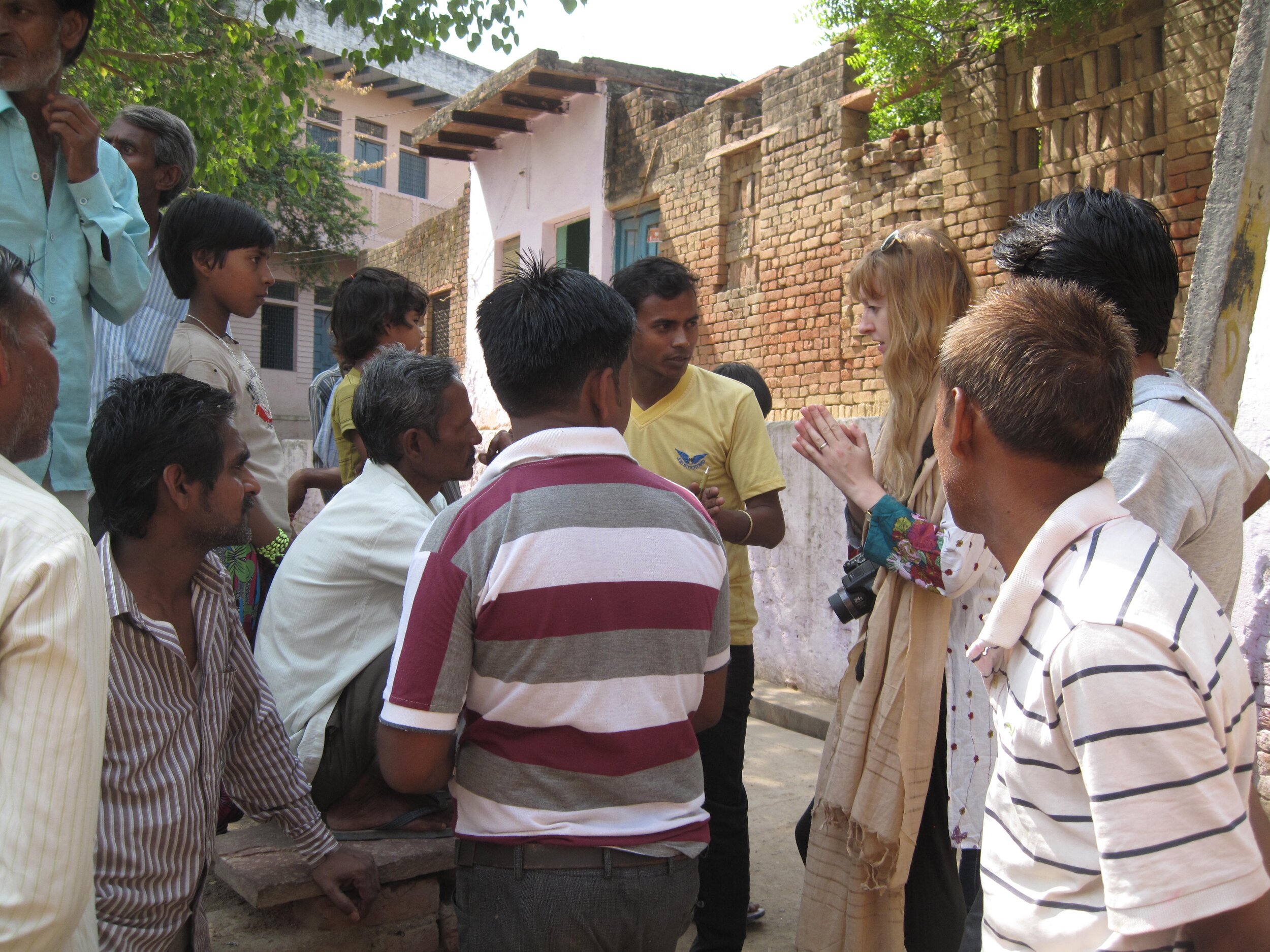
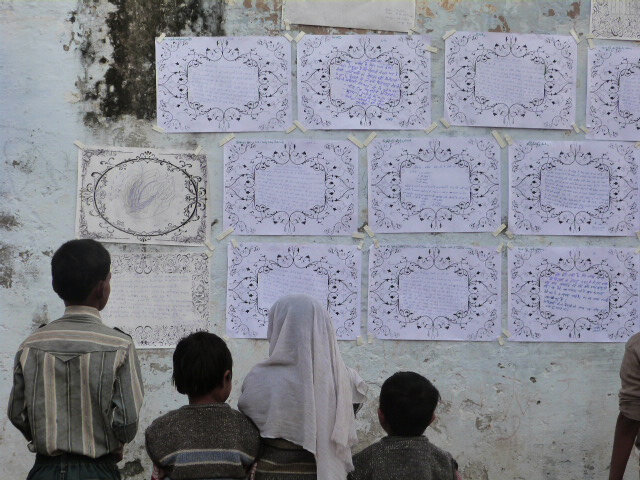
Whilst working with Indian NGO CURE, Rachel worked extensively with community groups on participatory projects that would allow a large-scale, tourism-focussed urban realm project to better benefit local residents and businesses. This informed a strategy to increase connectivity to a major tourist destination (the Taj Mahal) and thus increase footfall on under-used streets. Through this work, OGU have developed techniques for incorporating cultural heritage, spatial memory and local identity into urban design proposals.
Tajganj Heritage Walk Proposal (in collaboration with CURE - the Centre for Urban and Regional Excellence)
The Sound-Considered City | A Guide for Decision Makers
The Sound-Considered City: co-authored by Prof. Gascia Ouzounian, Dr Sarah Lappin and Dr Rachel O’Grady
Rachel and Chris both started their careers designing primary and secondary schools and schools for students with Special Education Needs, as well as housing for older people. This experience colours our attitude to cities, which we believe require extensive design input in order to become inclusive and age-friendly. An important and overlooked aspect of an inclusive city is the sonic environment: a topic Rachel investigated in detail as co-author of The Sound-Considered City: A Guide for Decision Makers.
Covid Recovery Policy | Ormeau Road
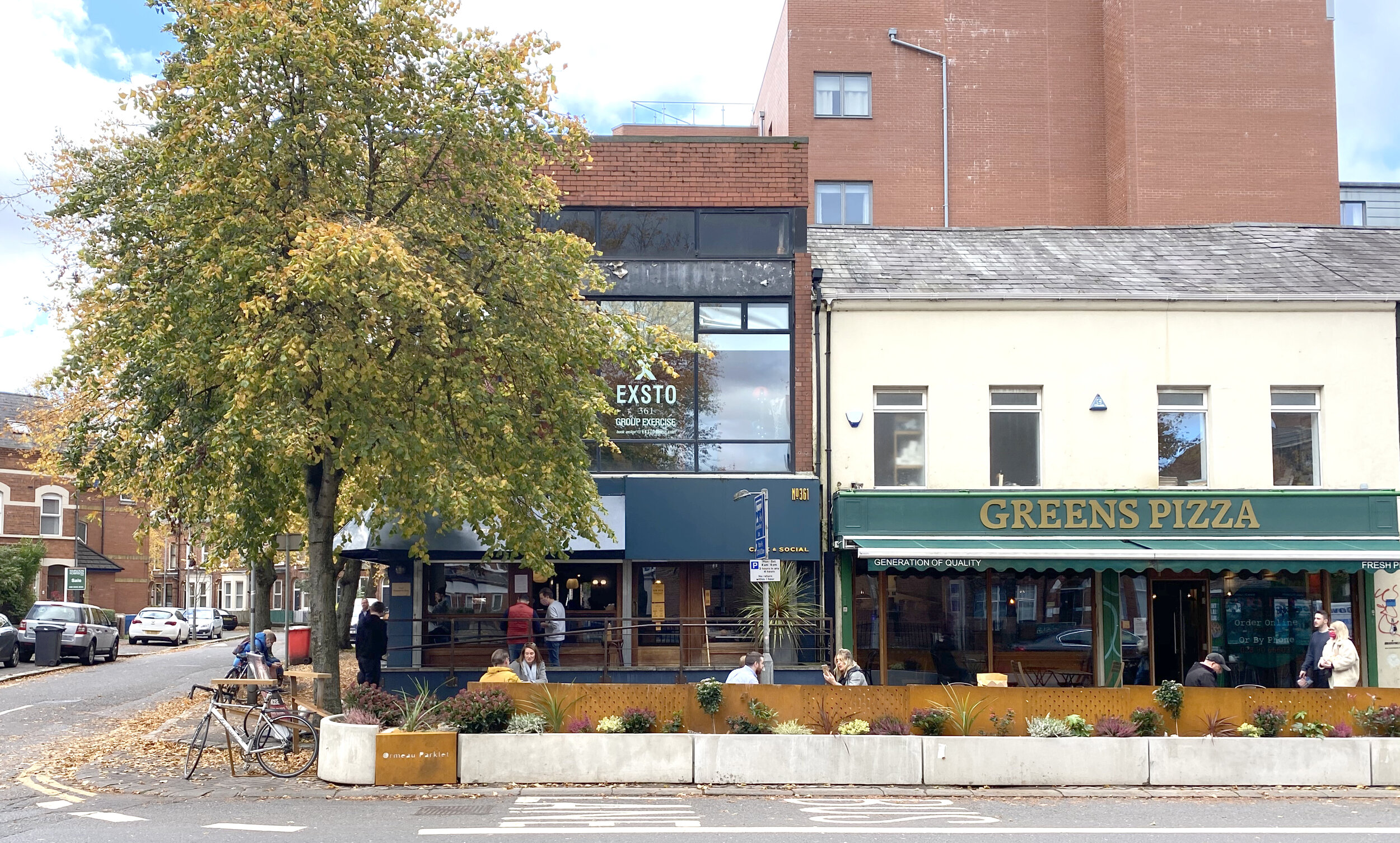
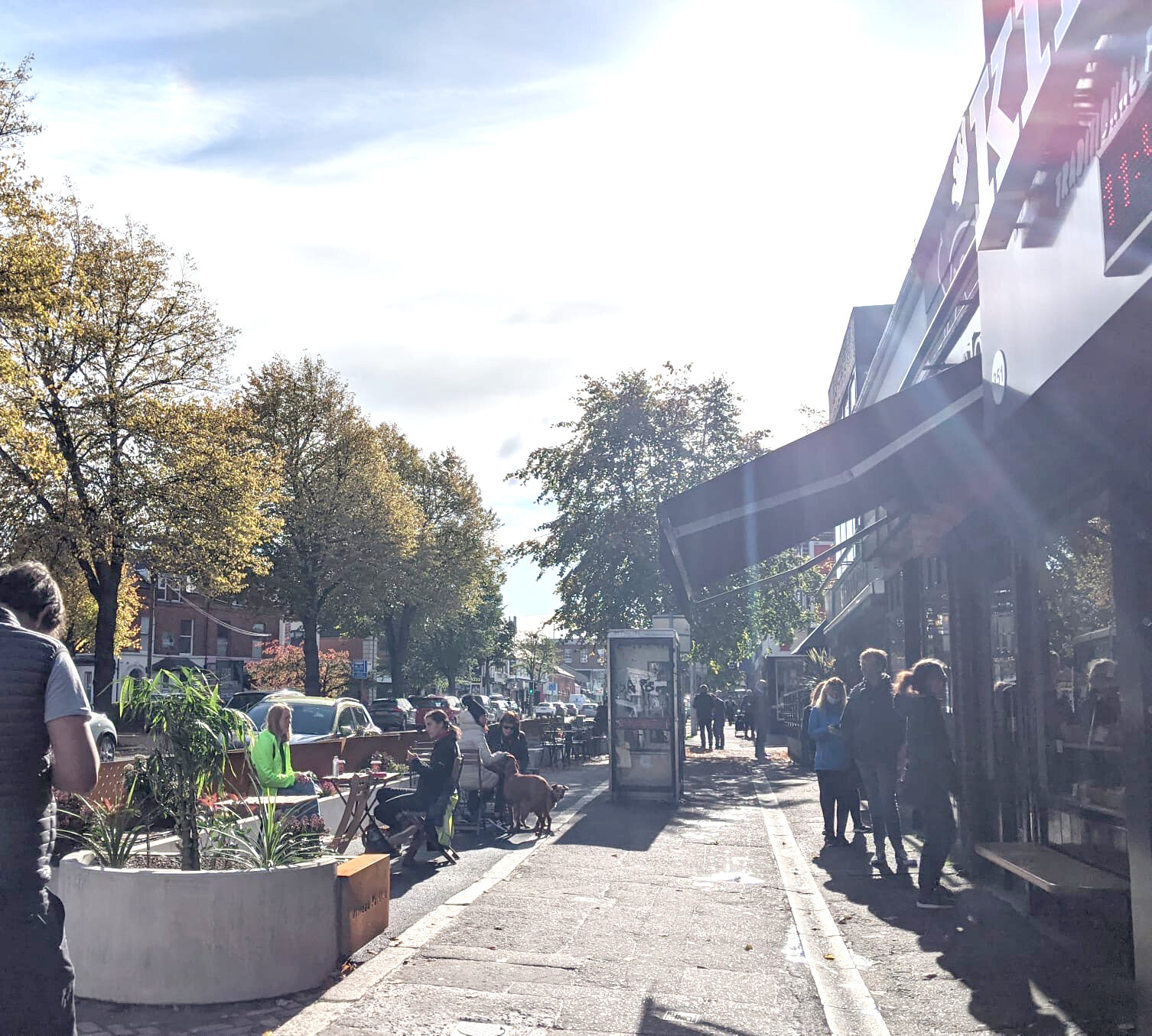
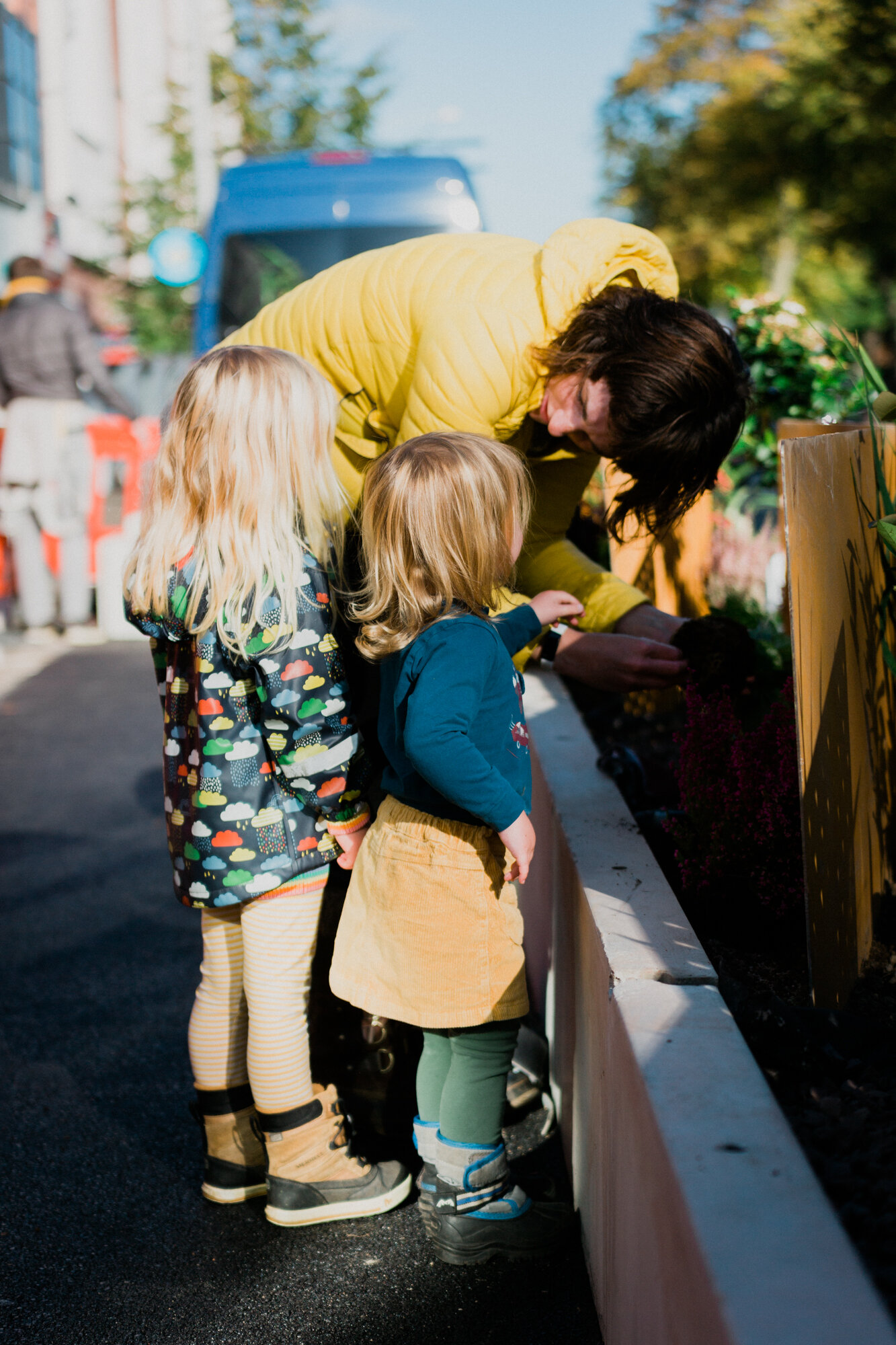
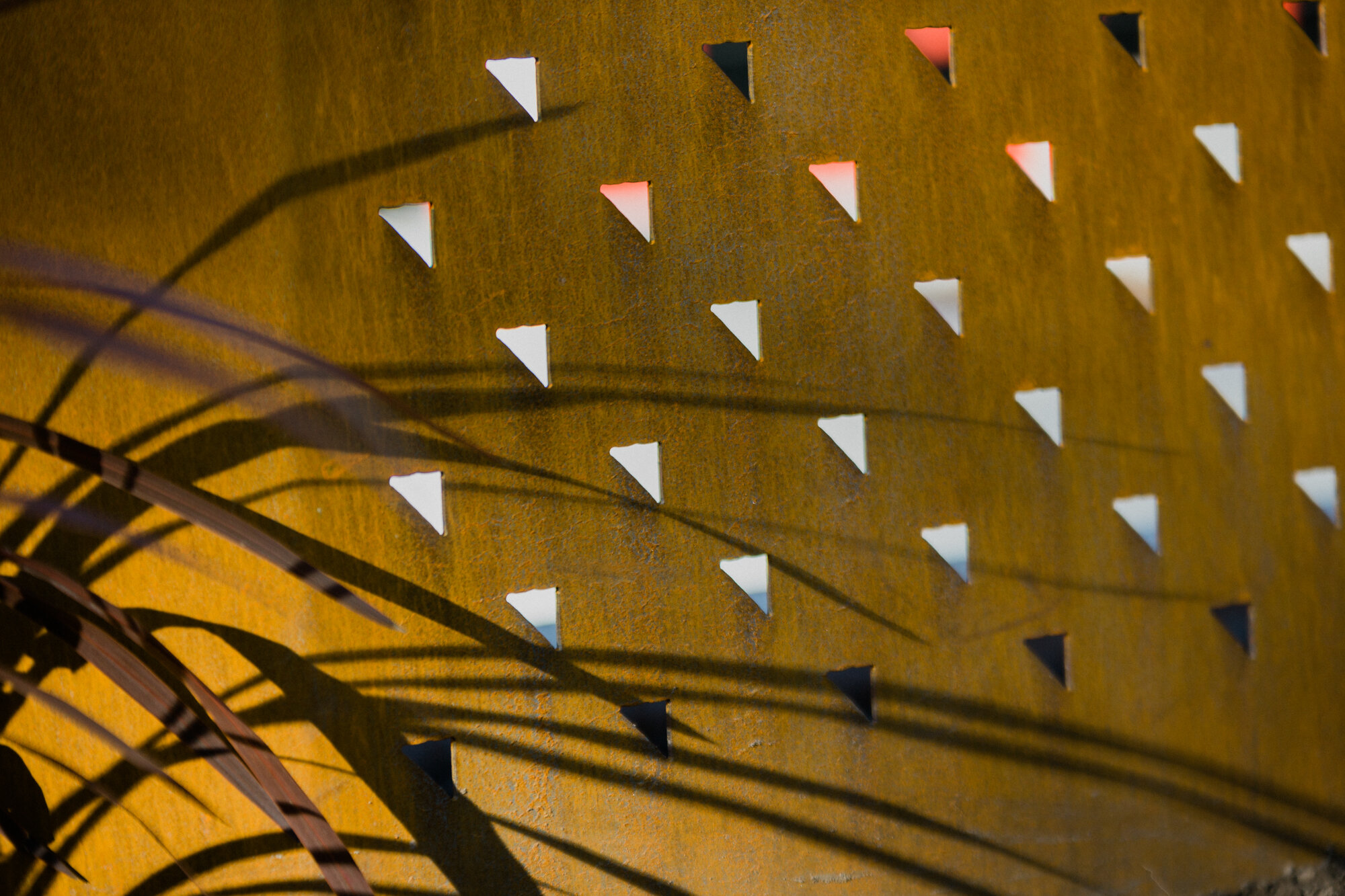
A desire to support local businesses and promote better street life on the Ormeau Road following the Covid 19 pandemic brought Belfast Buildings Trust, OGU Architects, MMAS Architects and Queen’s University together in an attempt to find quick, cheap ways of converting parking space to ensure social distancing, facilitate trading and create better public access to open shared spaces.
The team has converted five on-street parking spaces into designed outdoor space using temporary urbanism and collaborative co-design approaches. The additional pavement space can be used by the public for physical distancing, and by cafes and restaurants for business purposes, on a test and trial basis. The project incorporates a range of community and business engagement approaches as a collaborative local test for wider civic use. It is also evidence-based with impact and research studies to help inform other urban placemaking projects in Belfast. It is the first parklet delivered in Northern Ireland.
The team produced a guidance document for the Ormeau trial called ‘Expanding Pavements Enriching Street Life’ which has been disseminated to various stakeholders to achieve consensus and move the project forward. We have consulted widely with business to gain their support. The team worked with Inclusive Mobility & Transport Advisory Committee (IMTAC) to maximise accessibility. We have been working in collaboration with the Department for Infrastructure to develop the final solution for a Northern Irish context. The team understand highway considerations, pedestrian safety, urban design principles, maintenance requirements and lead times constraints around creating and changing and currating streets on a temporary basis. It is important that councils act quickly on the need for expanded pavements and outdoor seating space in a strategic way which has long lasting positive implications for urban design and Northern Irish street life.
The team have worked with local manufacturers and suppliers to protoype and cost the final solution. Bespoke elements were manufactured in less than a week and the construction of the parklet was delivered in 4 days in time for a community planting day and opening. The project has been a great success and is well used so far. Research is being collected to assess its impact so that an evidenced based approach is utilised for future parklets and temporary pavement extensions in Northern Ireland. The team brings considerable research and knowledge of this process and the Belfast context for these types of demountable urban design.
Client + Collaborators: Belfast Buildings Trust, Department for Infrastructure, Queens University, Belfast City Council, Inclusive Mobility & Transport Advisory Committee (IMTAC), Local Businesses + Residents.

